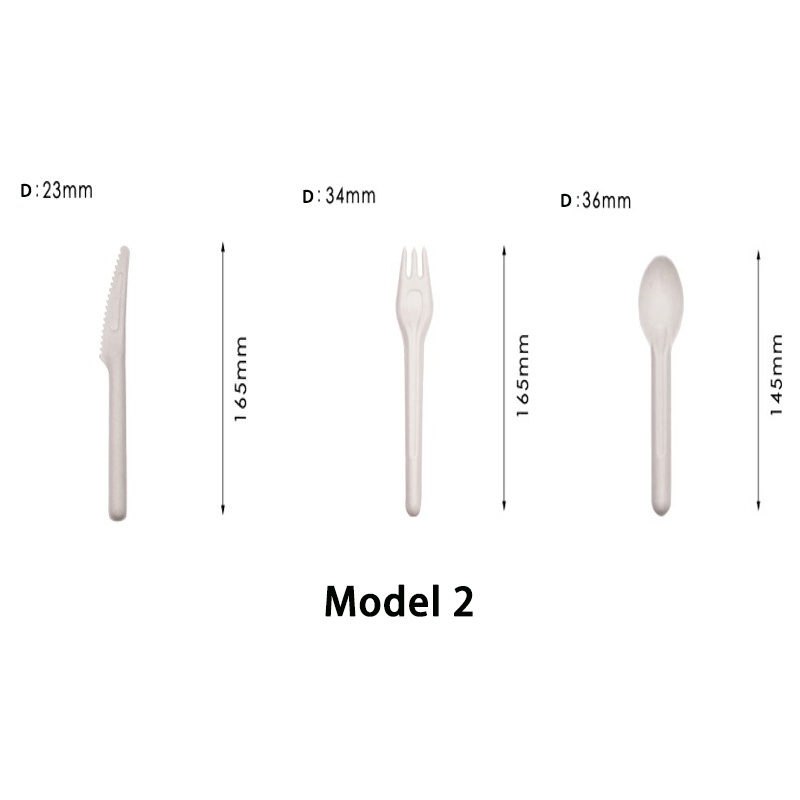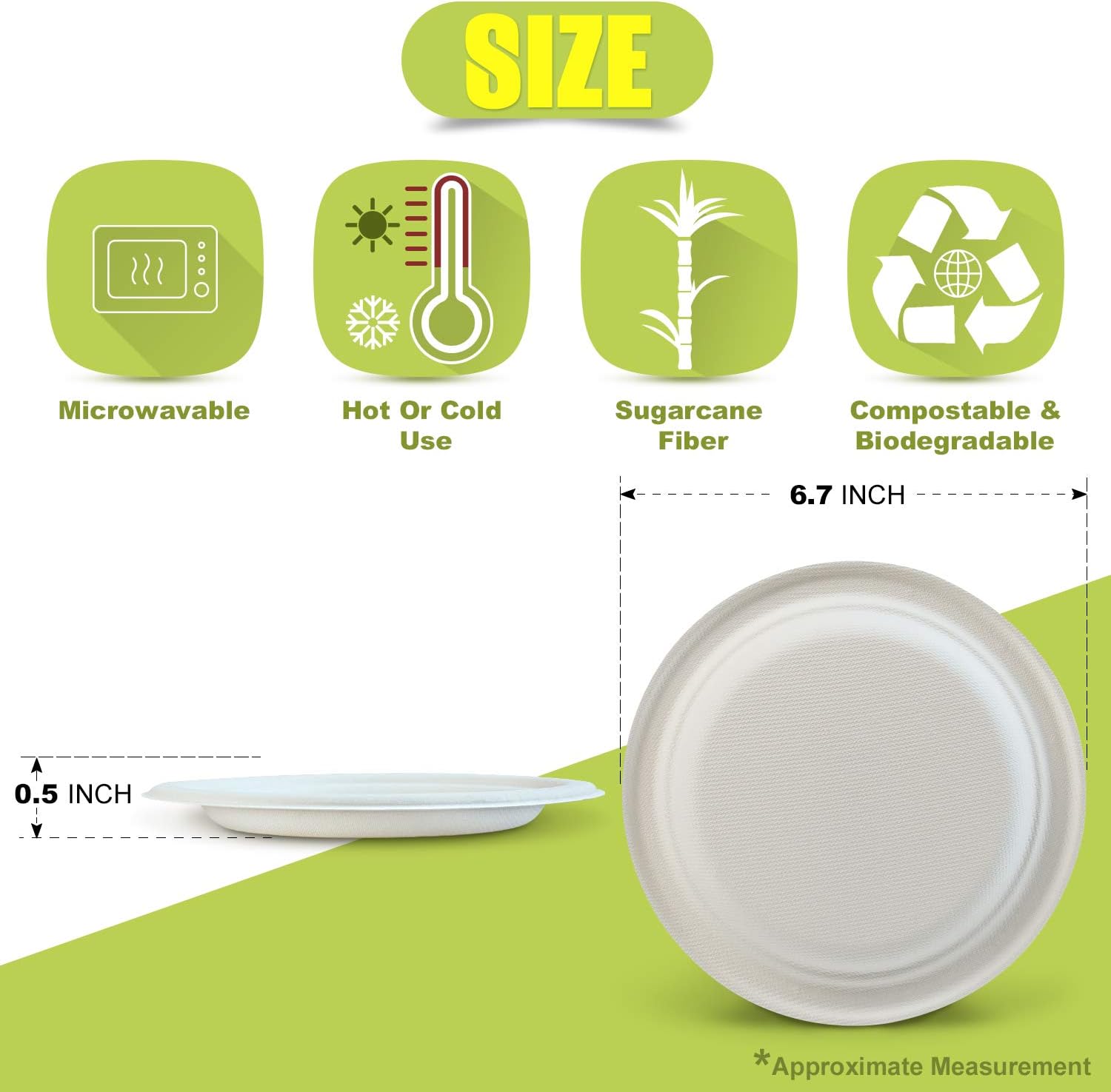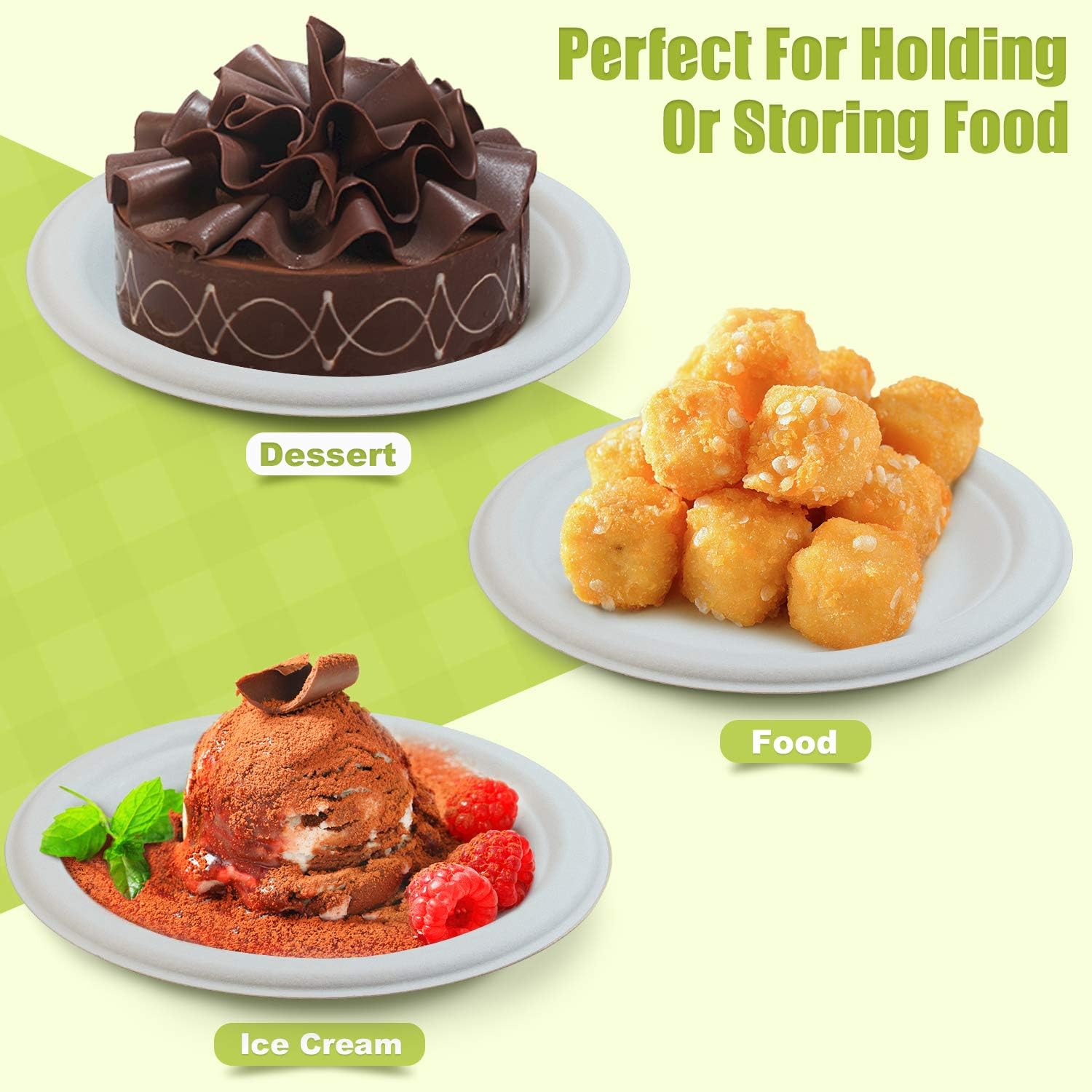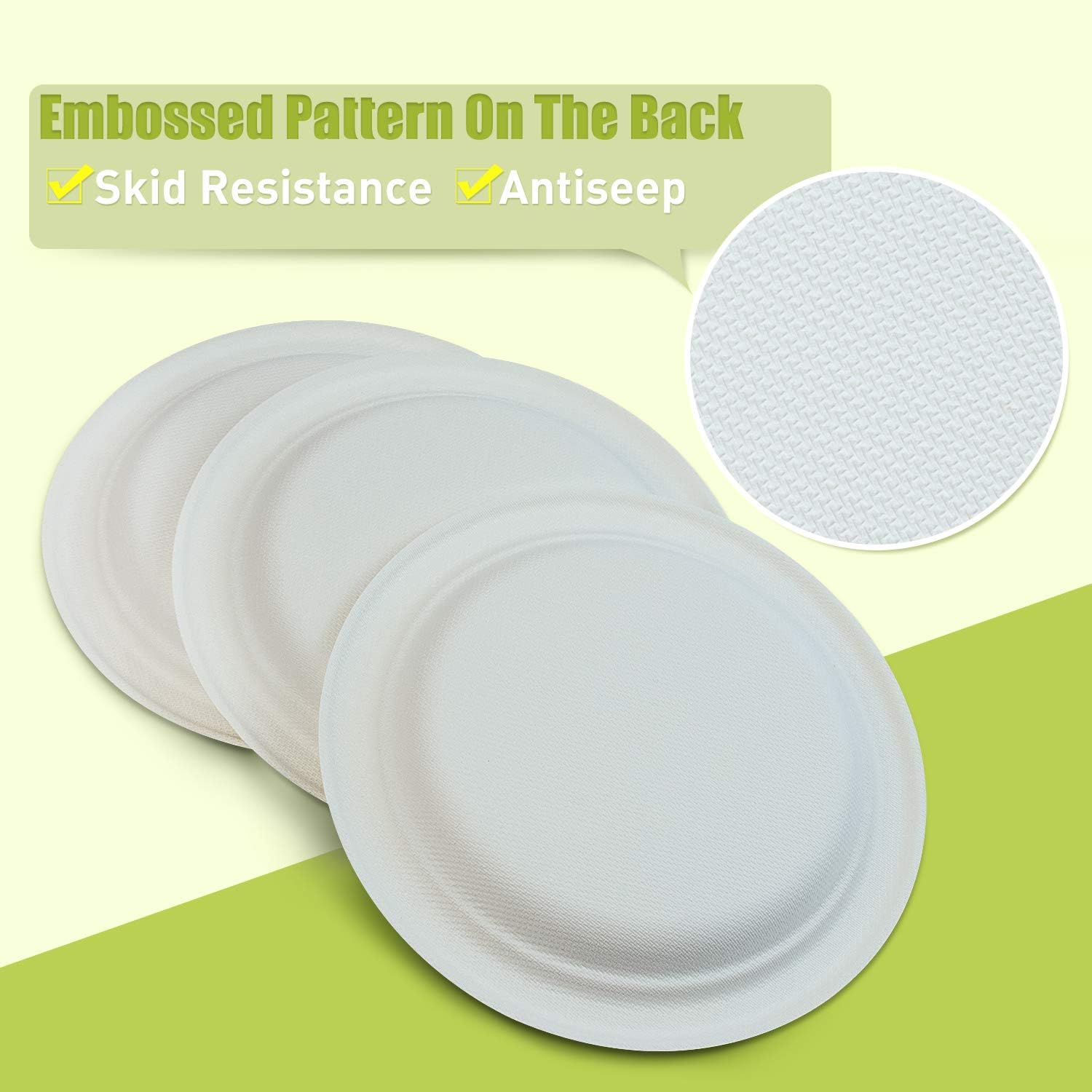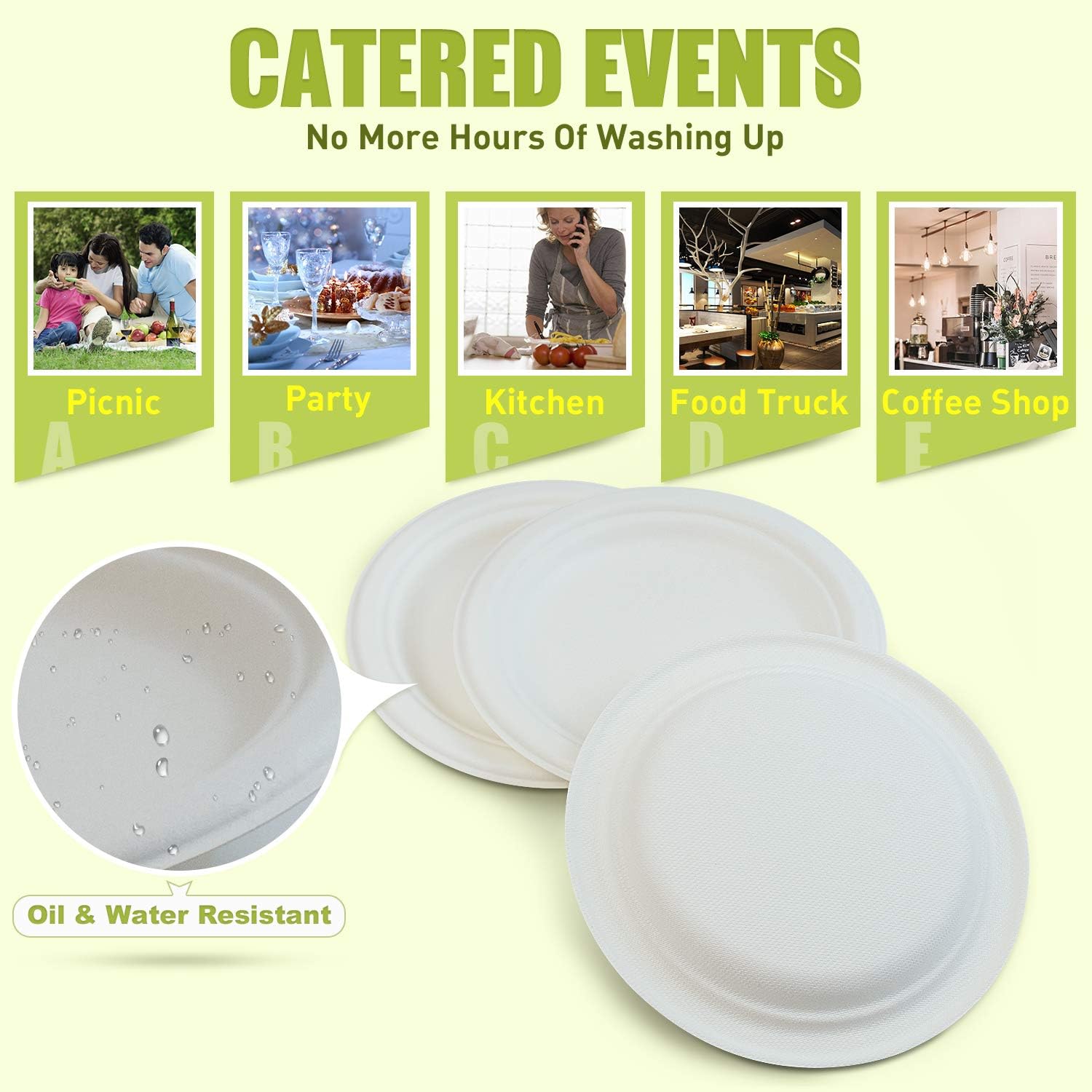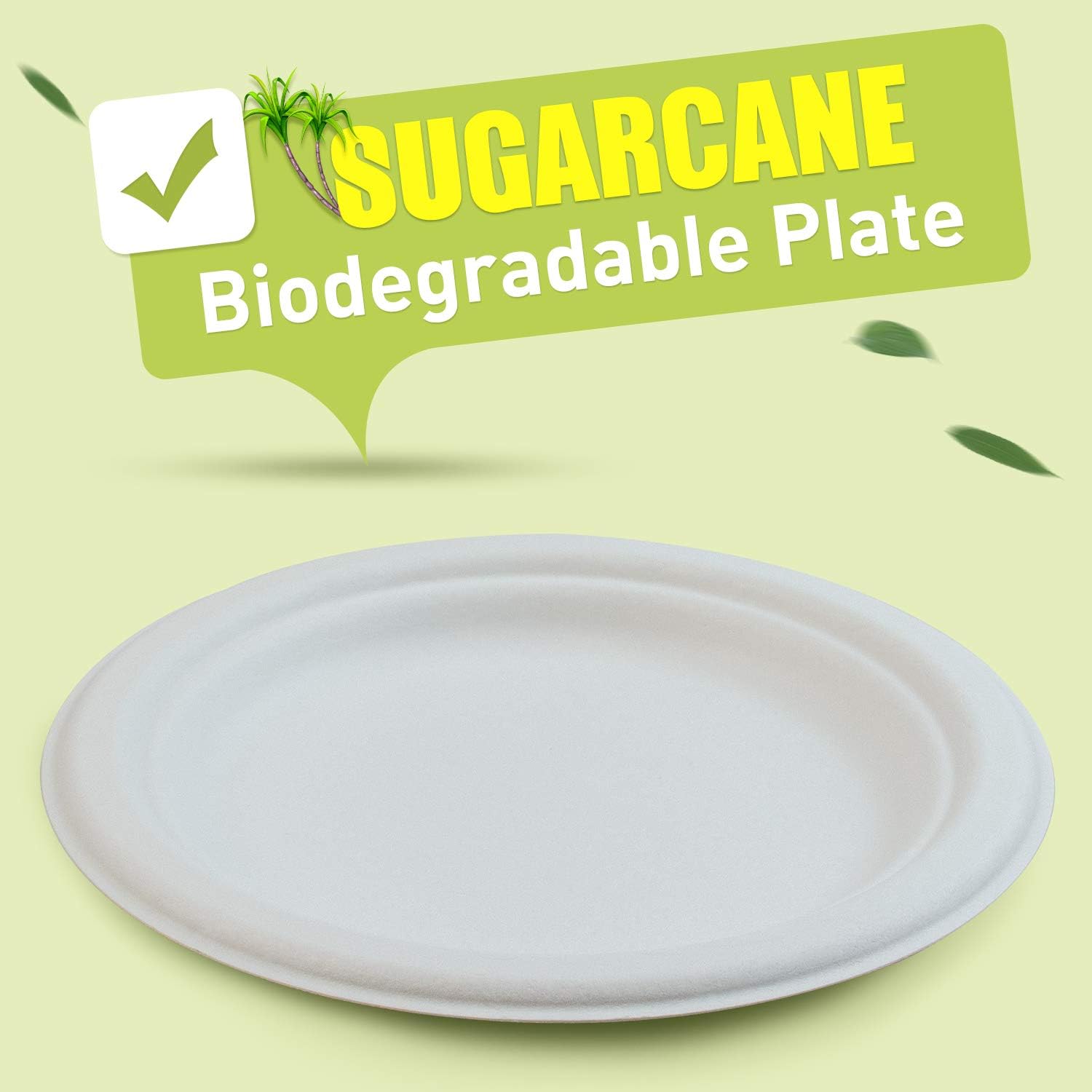7 Inch Disposable Bagasse Plate
Our Advantages
1. Waterproof, oil-proof, high temperature resistance
2. 100% Biodegradable
3. Microwave,Freezer & Oven
4. High strength hardness
5. Has natural antibacterial function
From Nature & Back to Nature
-

Bagasse Pulp
All-Natural PFAS Free -

Sustainable
Natural Degradation Renewable -

High Strength Hardness
Embossing Process -

Heat & Low Temperature
-18℃/90 days226℃/5 minutes -

Smooth and Delicate
Few ImpuritiesHigh Cleanliness -

Waterproof & Oilproof
Bamboo Pulp LeakproofStarch Plasticity
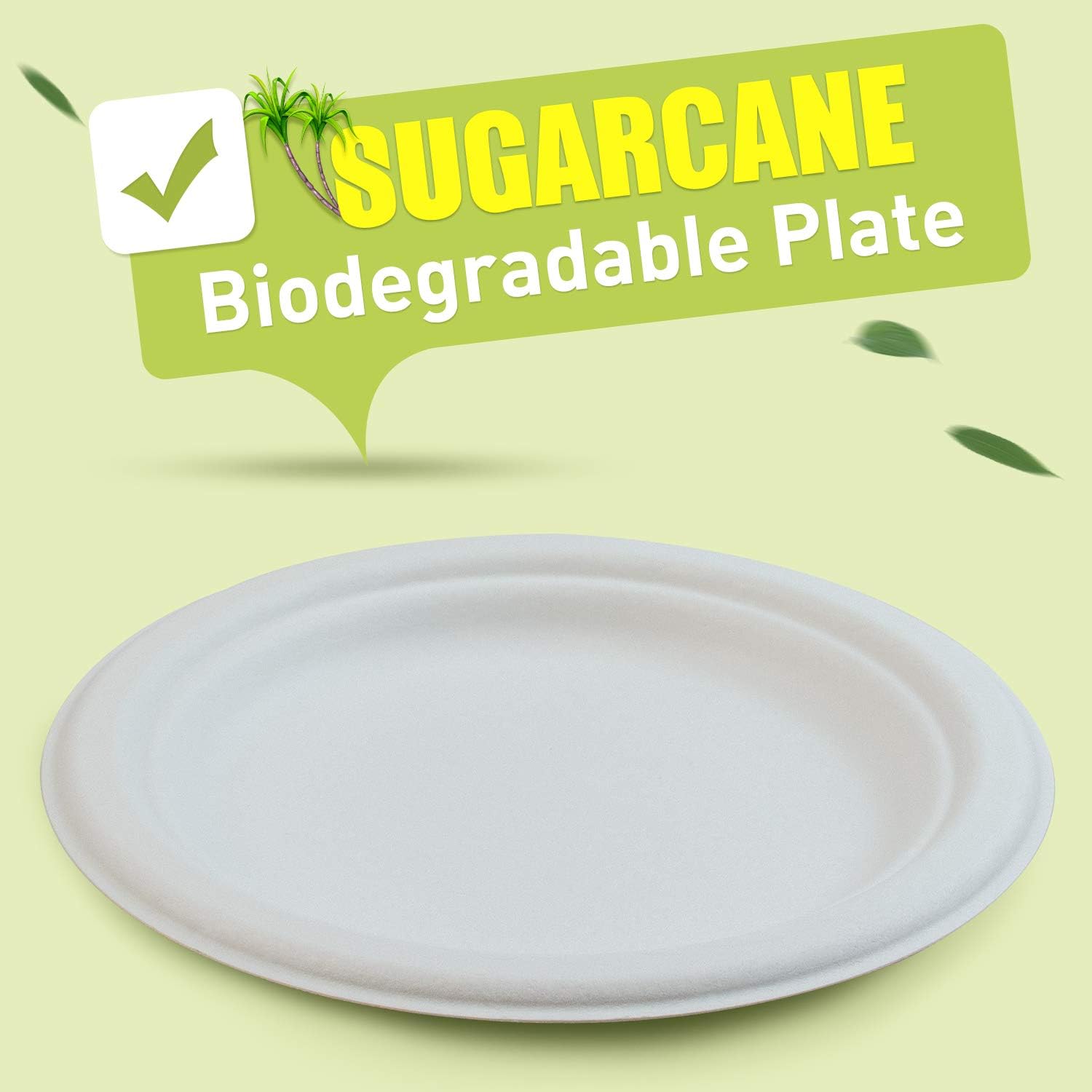
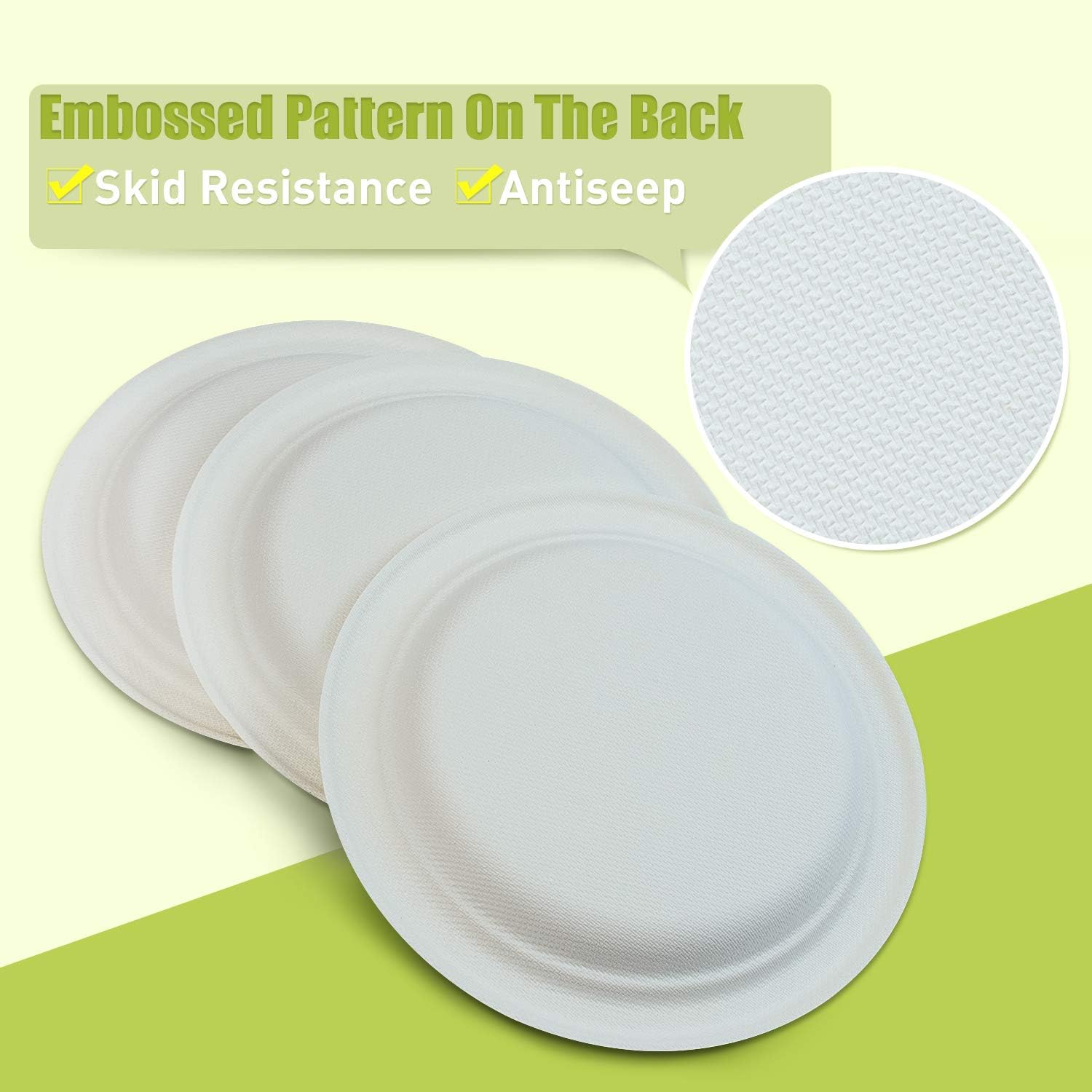
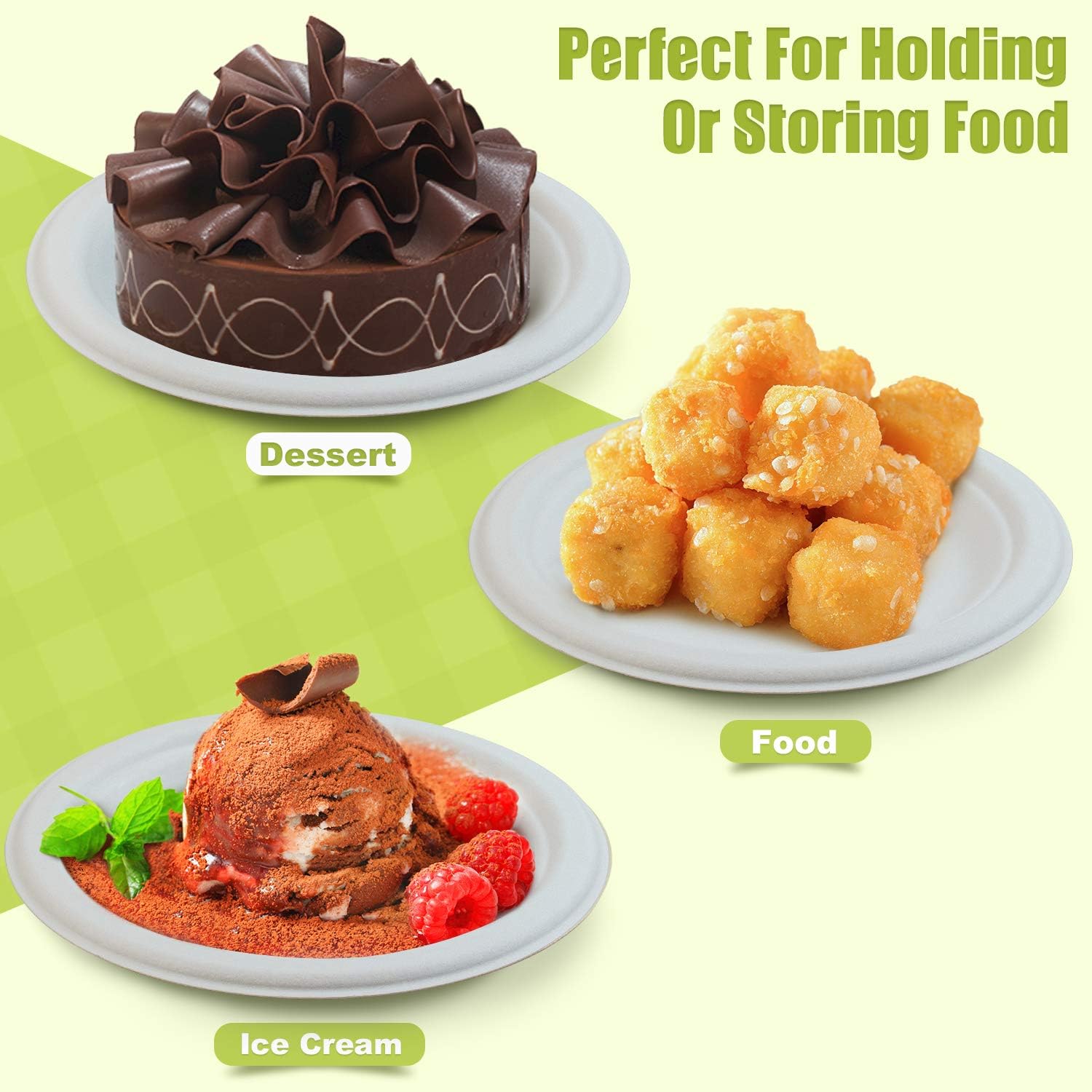
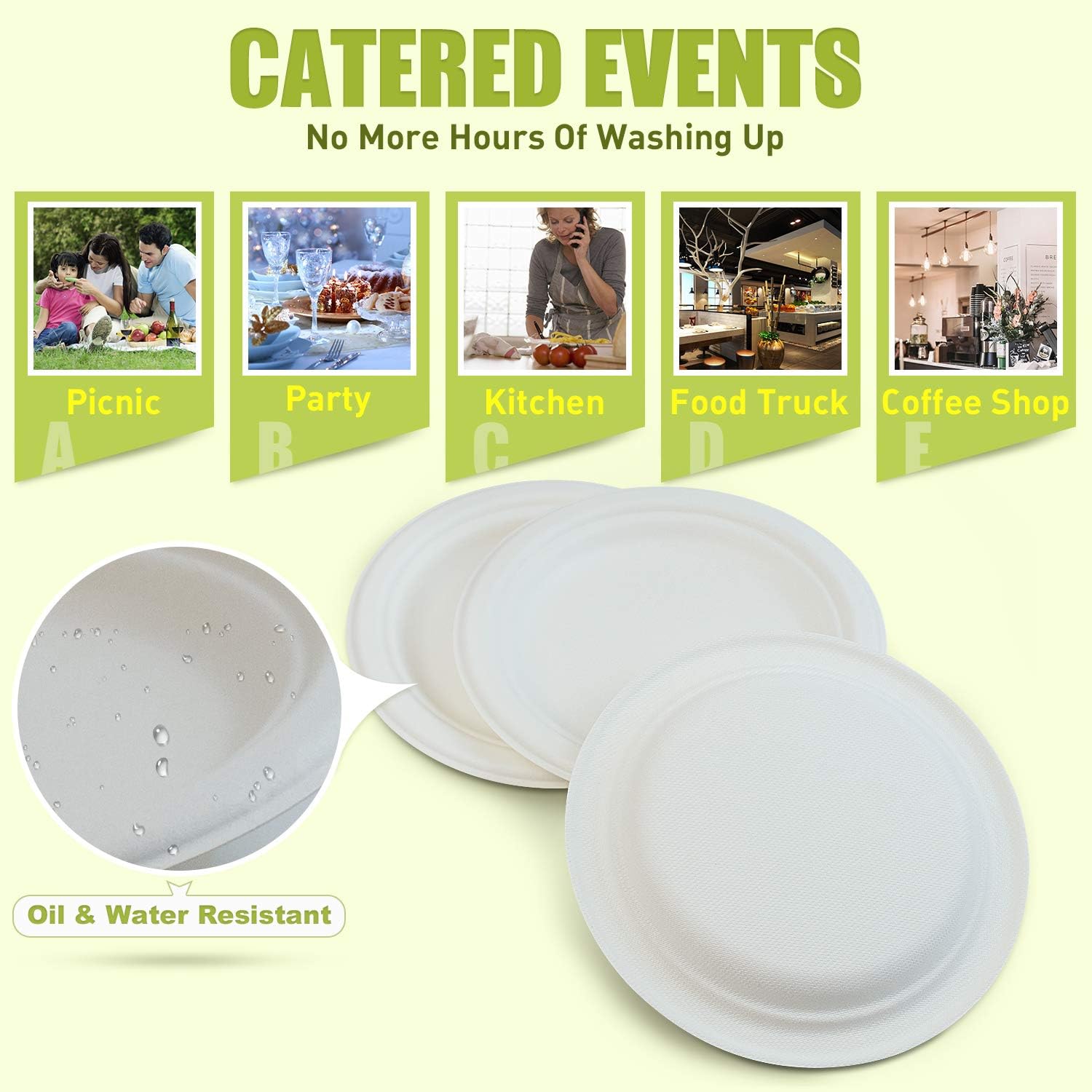
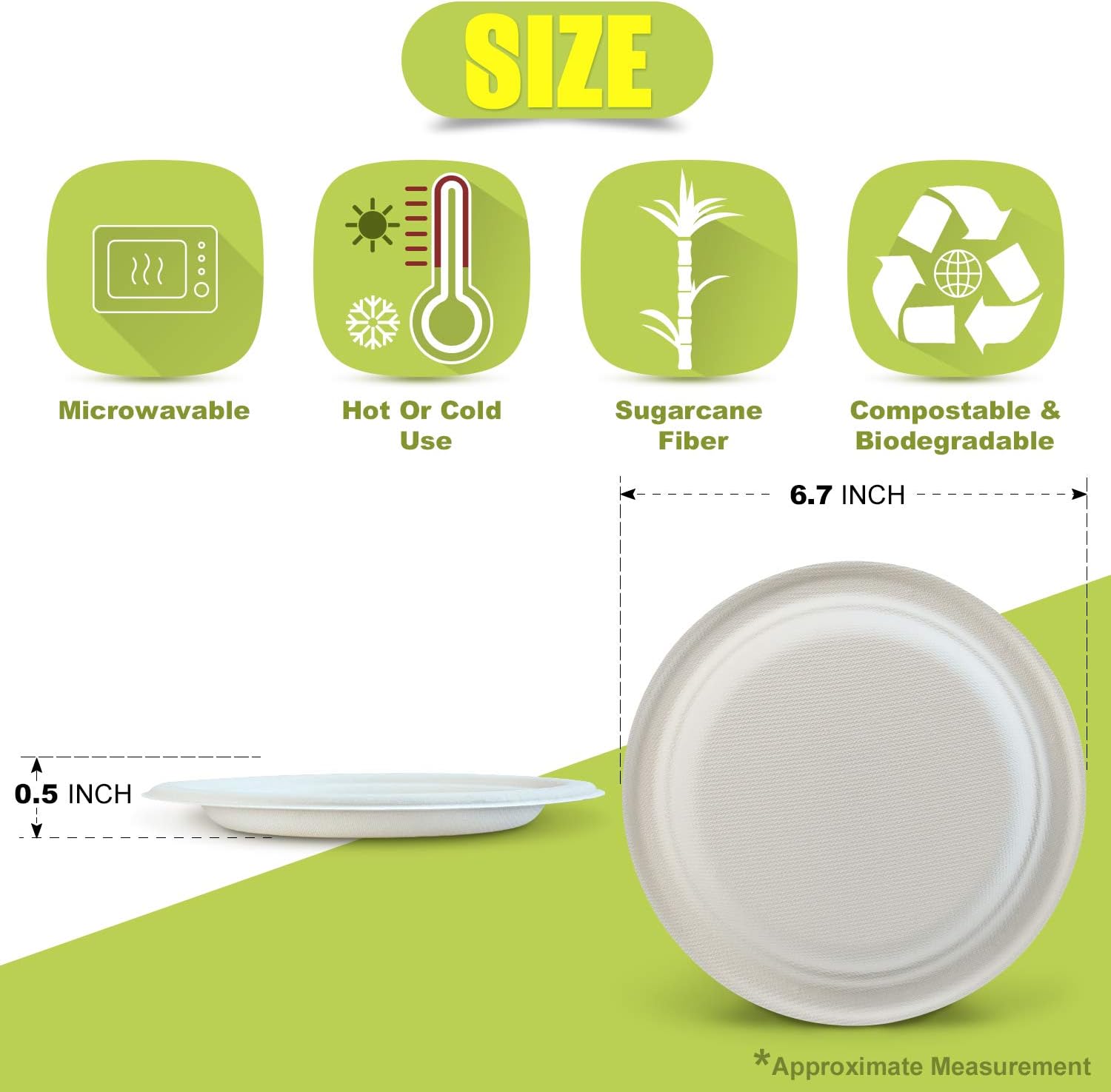
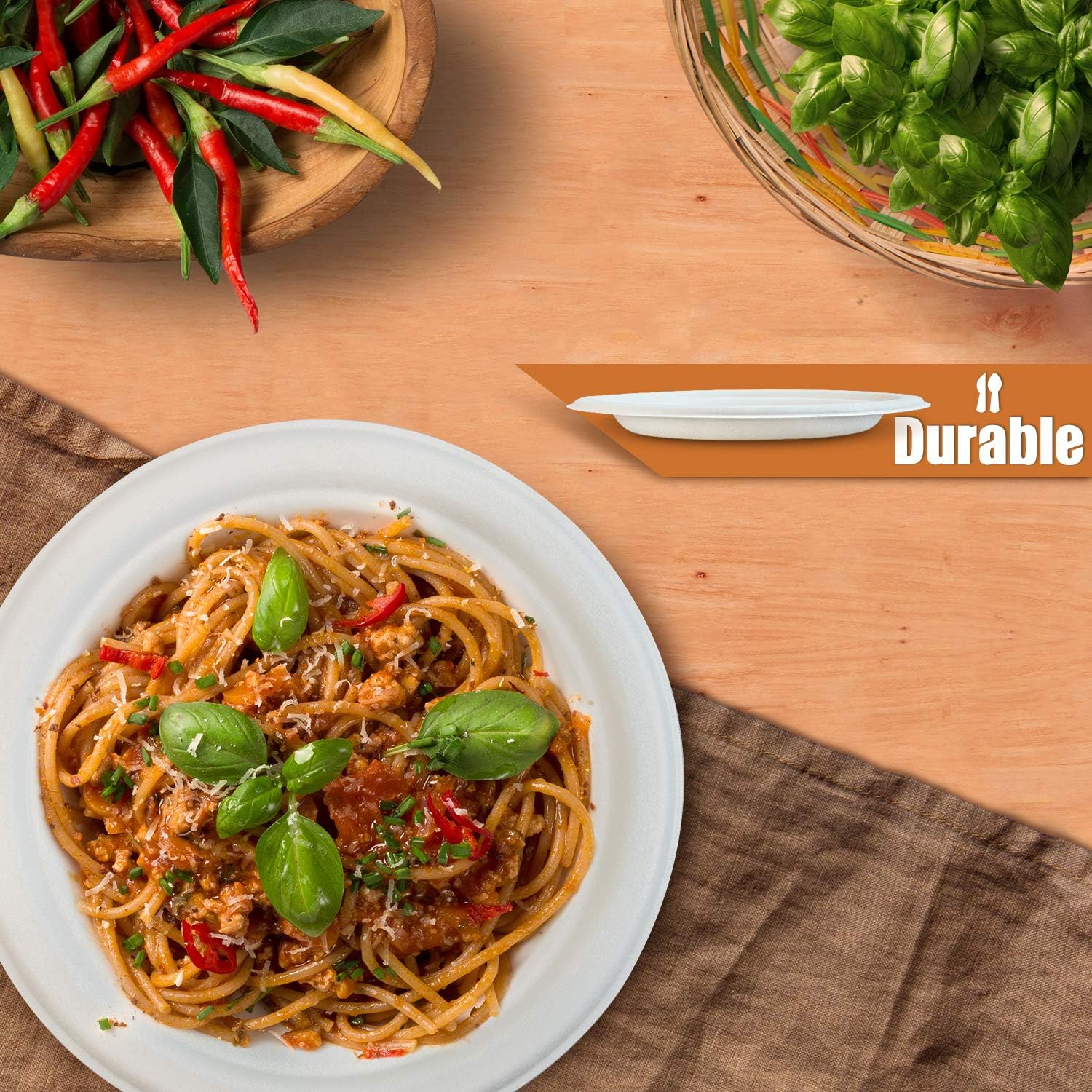
Certifications
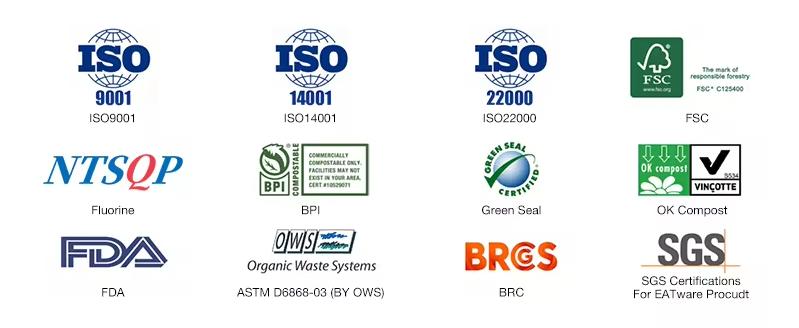
Cooperative Customer

Packaging & Shipping
Shipment Delivery Speed First-Class, Safe And Efficient
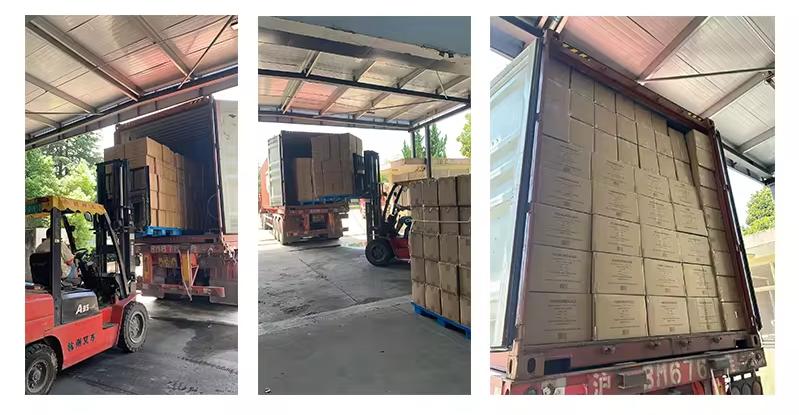
Our Service
We Are An Industrial Company Integrating Production And Sales.
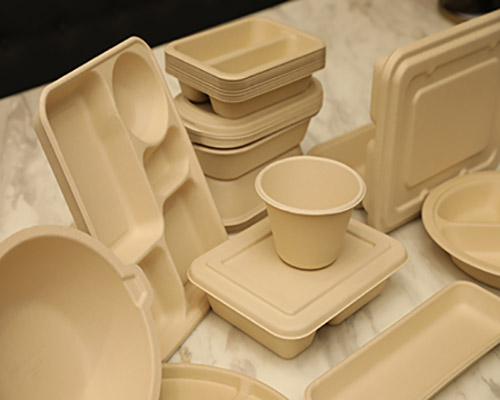
-
* Customized production--ODM service* Sample production--OEM service* Spot factory direct supply service* Logo customization service
Our Production Flow
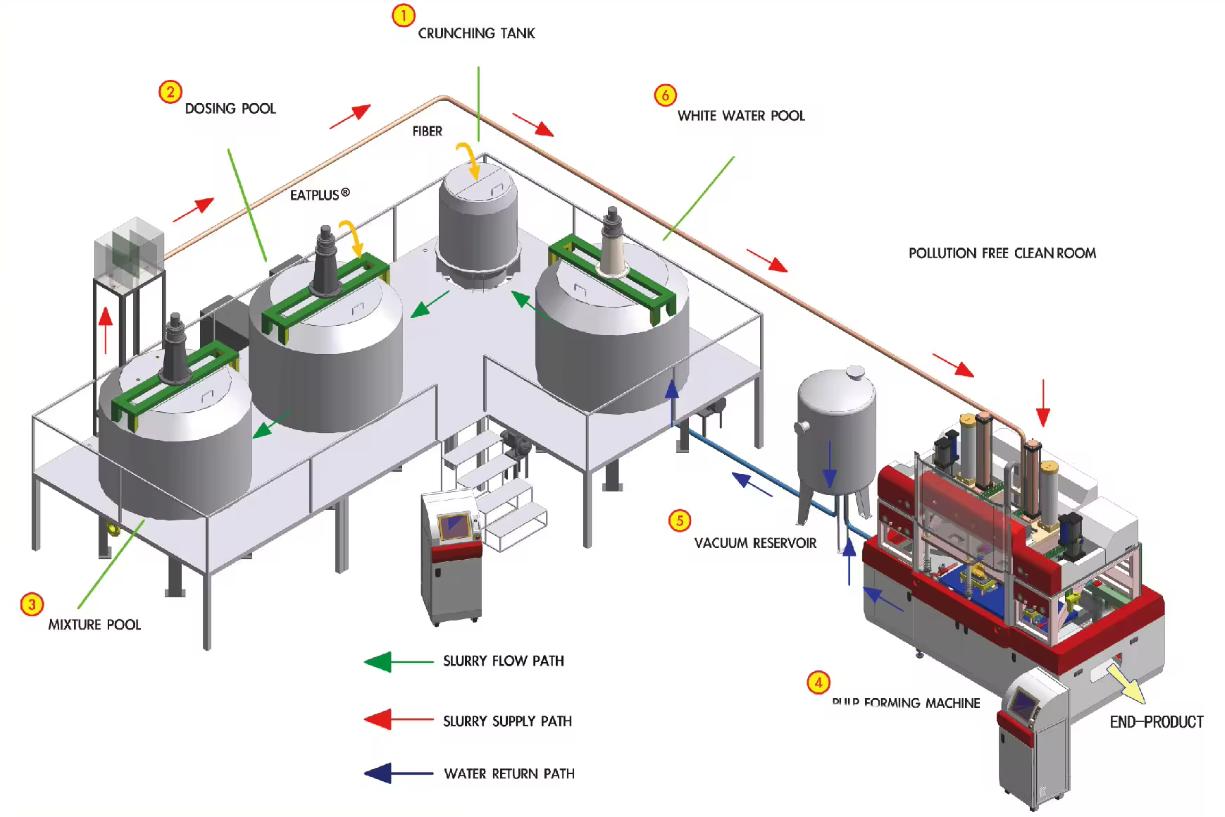
FAQ
Are compostable plates really compostable?
Compostable plates are designed to break down in a composting environment, typically within a specific time frame and under specific conditions. However, whether they actually break down as intended depends on various factors, such as the composition of the plates, the conditions of the composting process, and the facilities used for composting.
In an industrial composting facility with the right conditions of heat, moisture, and microbial activity, compostable plates are more likely to break down effectively. However, in a home composting system or in a landfill, the plates may not break down as quickly or effectively.
It's important to look for certifications such as "compostable" or "biodegradable" from reputable organizations when choosing compostable plates. Additionally, following the specific guidelines for composting these plates can help ensure they break down as intended. Always check with your local composting facility to understand their specific requirements for compostable items.
What is the most eco-friendly disposable plate?
The most eco-friendly disposable plates are typically made from materials that are renewable, biodegradable, and compostable. Some of the most common eco-friendly options include:
1). Plates made from bamboo: Bamboo is a fast-growing and renewable resource. Plates made from bamboo are sturdy, biodegradable, and compostable.
2). Plates made from bagasse: Bagasse is a byproduct of sugarcane processing and is a natural, biodegradable material. Plates made from bagasse are sturdy and suitable for hot and cold foods.
3). Plates made from recycled paper: Plates made from recycled paper are a good eco-friendly option, especially if they are unbleached and free from added chemicals.
When choosing eco-friendly disposable plates, look for certifications such as "compostable" or "biodegradable" from reputable organizations. Additionally, consider the end-of-life options for the plates, such as whether they can be composted in a home or industrial composting facility. Always check with your local composting facility to understand their specific requirements for compostable items.
What are the advantages of compostable?
Compostable products offer several advantages, including:
1). Environmental benefits: Compostable products break down into natural, non-toxic components, reducing the environmental impact compared to traditional plastics. They can help reduce the amount of waste sent to landfills and decrease the reliance on non-renewable resources.
2). Soil enrichment: When compostable products break down in a composting environment, they contribute to the creation of nutrient-rich compost, which can be used to improve soil quality and support plant growth.
3). Renewable materials: Many compostable products are made from renewable resources such as plant-based materials, which can help reduce dependence on fossil fuels and contribute to a more sustainable resource cycle.
4). Reduced greenhouse gas emissions: Composting organic materials, including compostable products, can help reduce methane emissions from landfills, as organic waste decomposes aerobically in composting facilities.
5). Consumer appeal: Many consumers are increasingly seeking out eco-friendly and sustainable products, and offering compostable options can be a selling point for businesses.
6). Regulatory support: Some regions and governments are implementing policies and regulations to promote the use of compostable products as part of broader waste reduction and sustainability efforts.
It's important to note that the full environmental benefits of compostable products are realized when they are disposed of properly in composting facilities. Therefore, education and infrastructure development for composting are essential to maximize these advantages.
To simplify, everything that is compostable is also biodegradable. However, biodegradable does not always mean compostable.

 Box With T buckle
Box With T buckle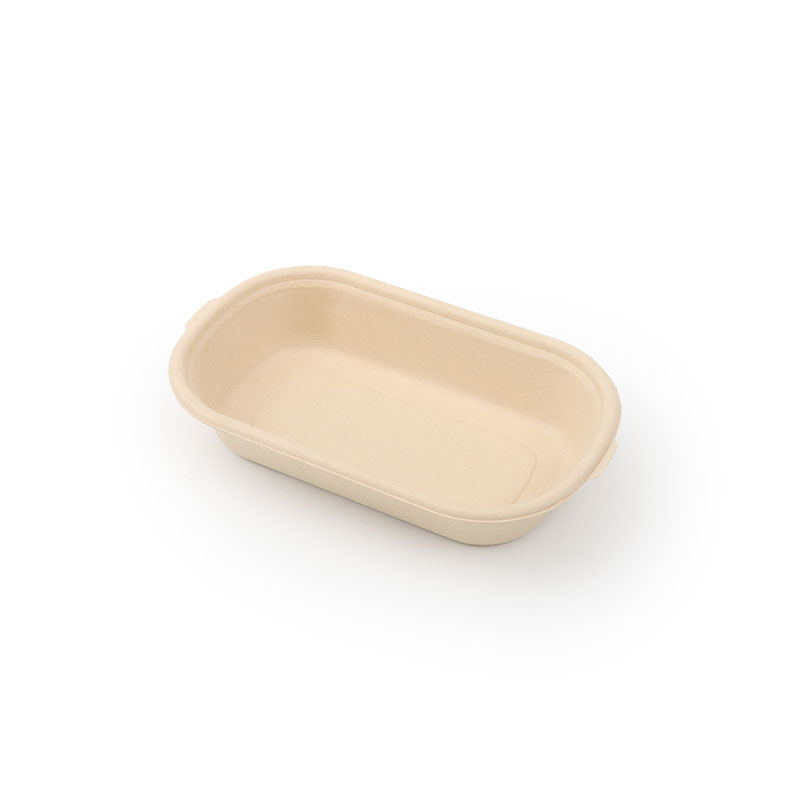 C31-0056-A
C31-0056-A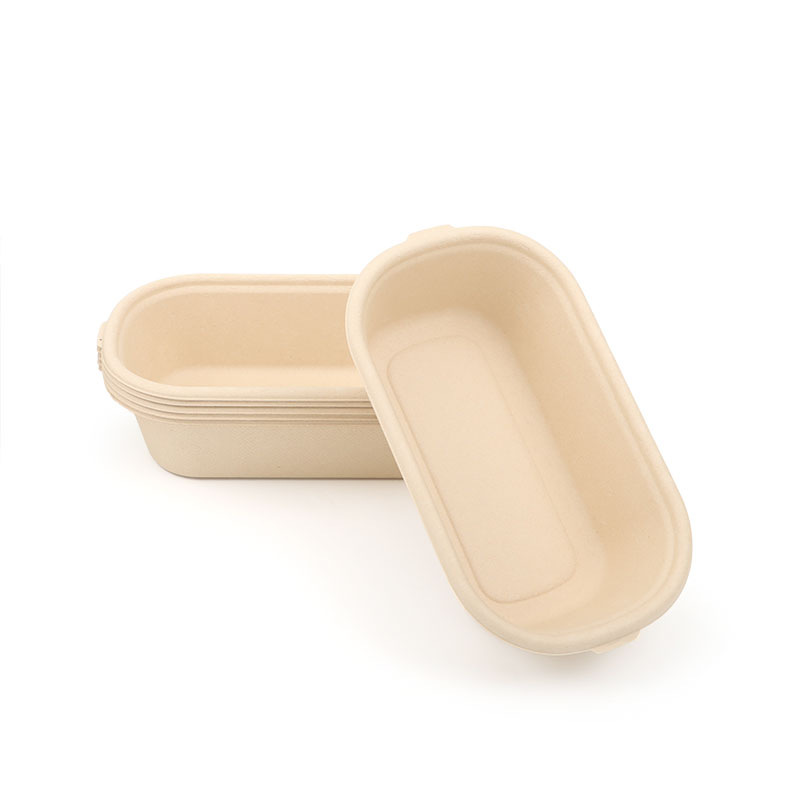 C31-0057-A
C31-0057-A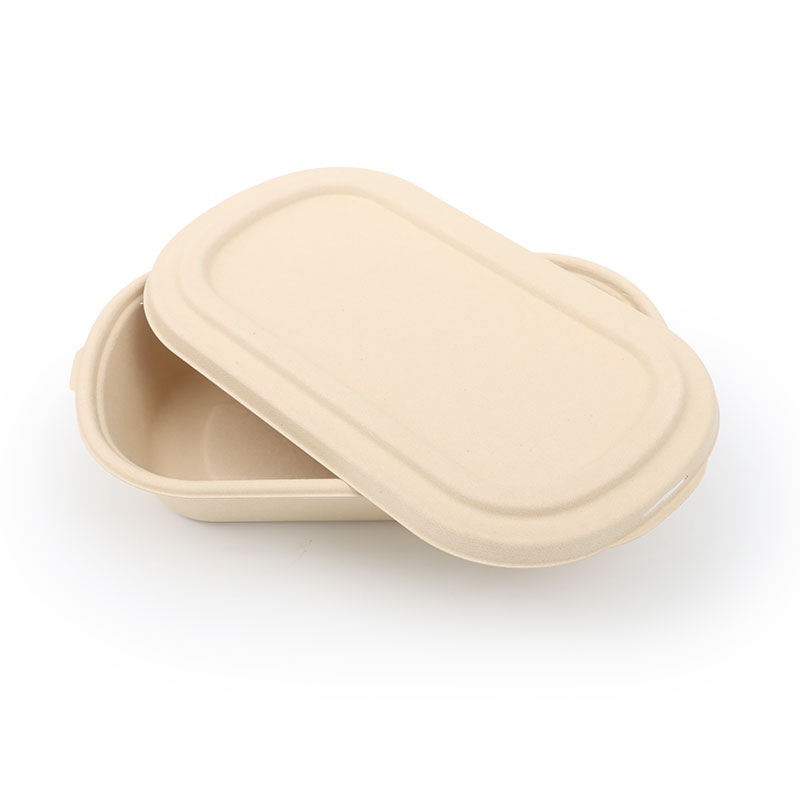 C31-0060-A
C31-0060-A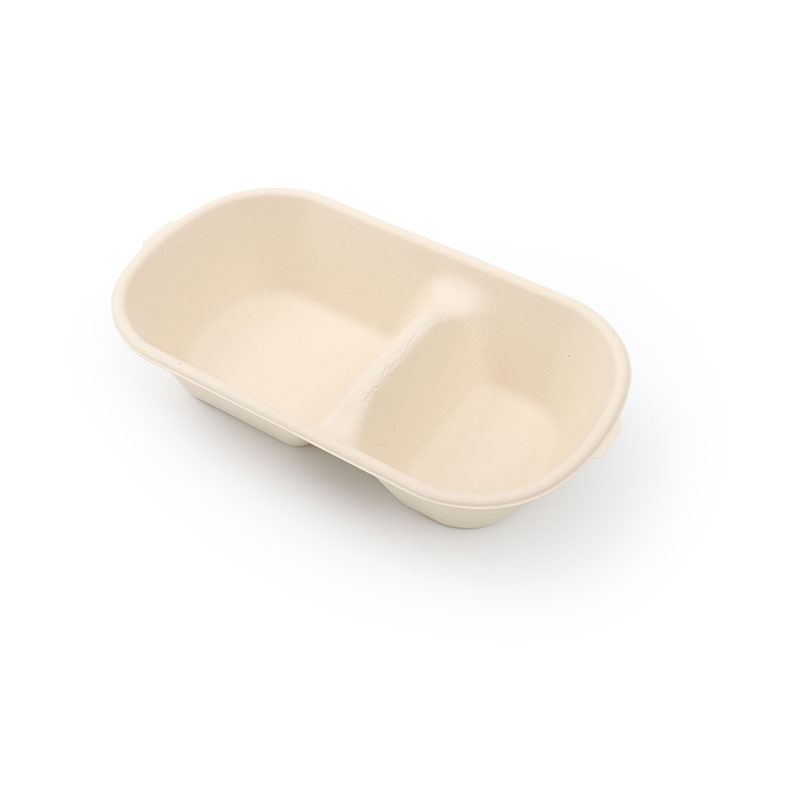 C31-0080-A
C31-0080-A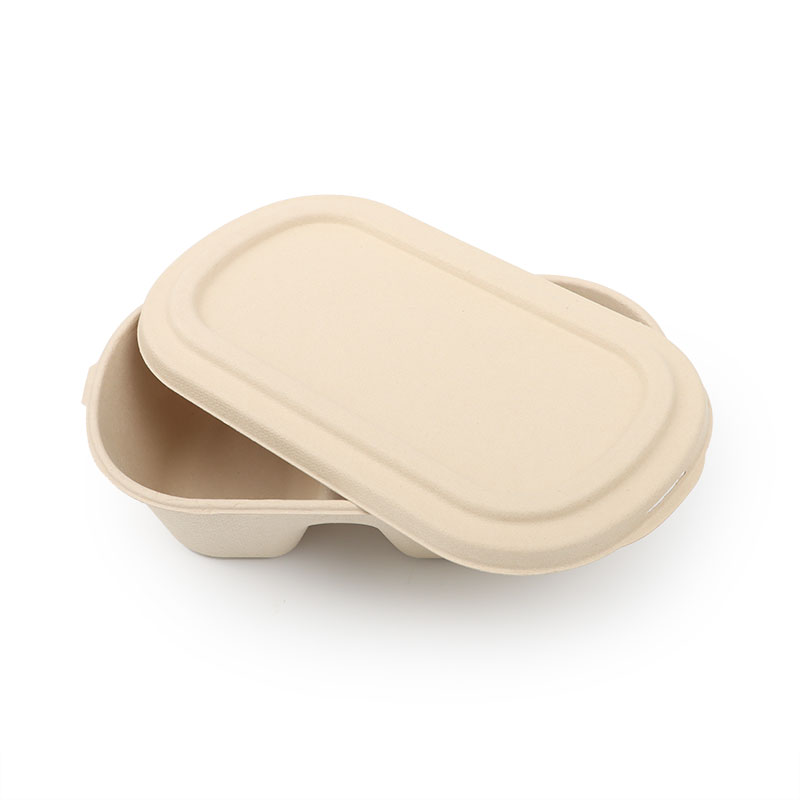 C31-0090-A
C31-0090-A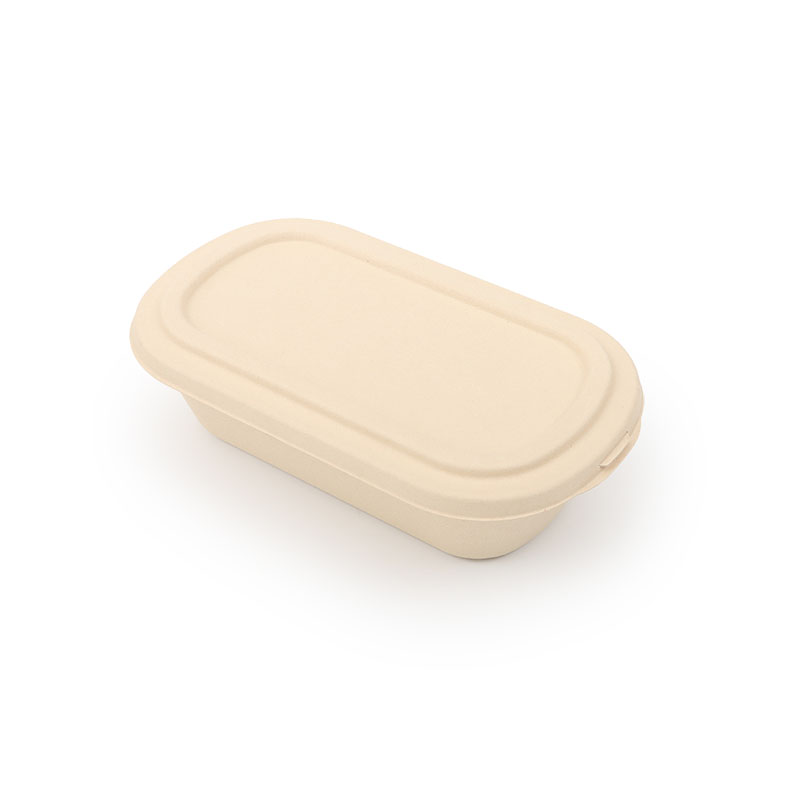 C31-0091-A
C31-0091-A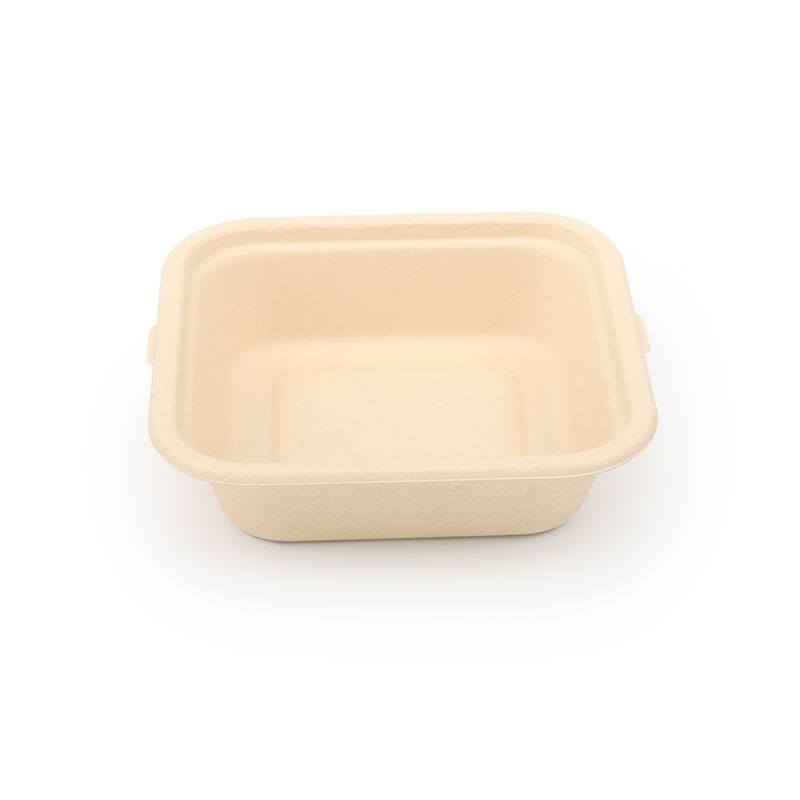 C31-0930-A
C31-0930-A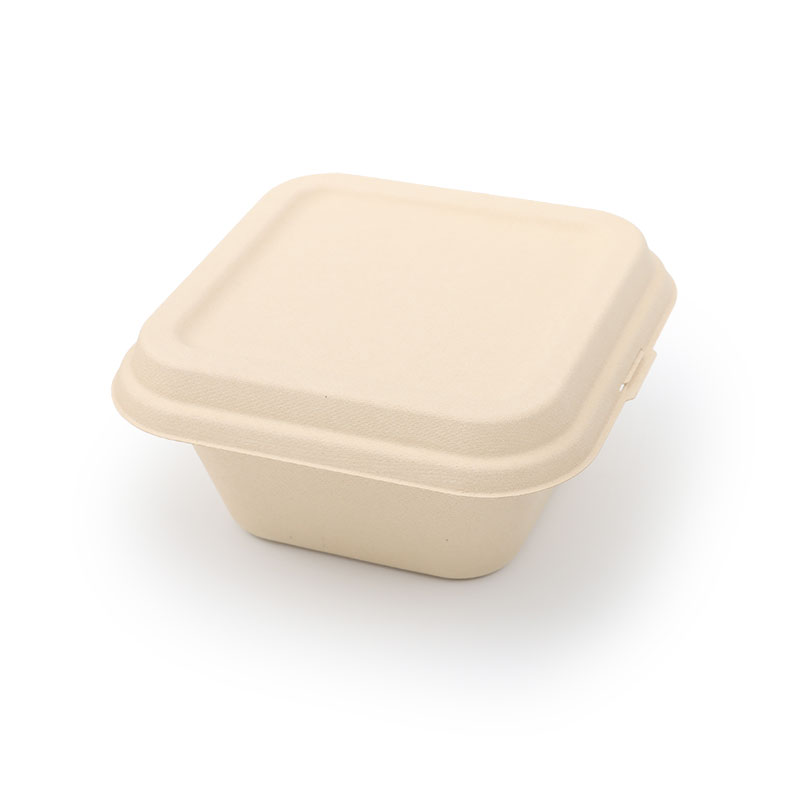 C31-0940-A
C31-0940-A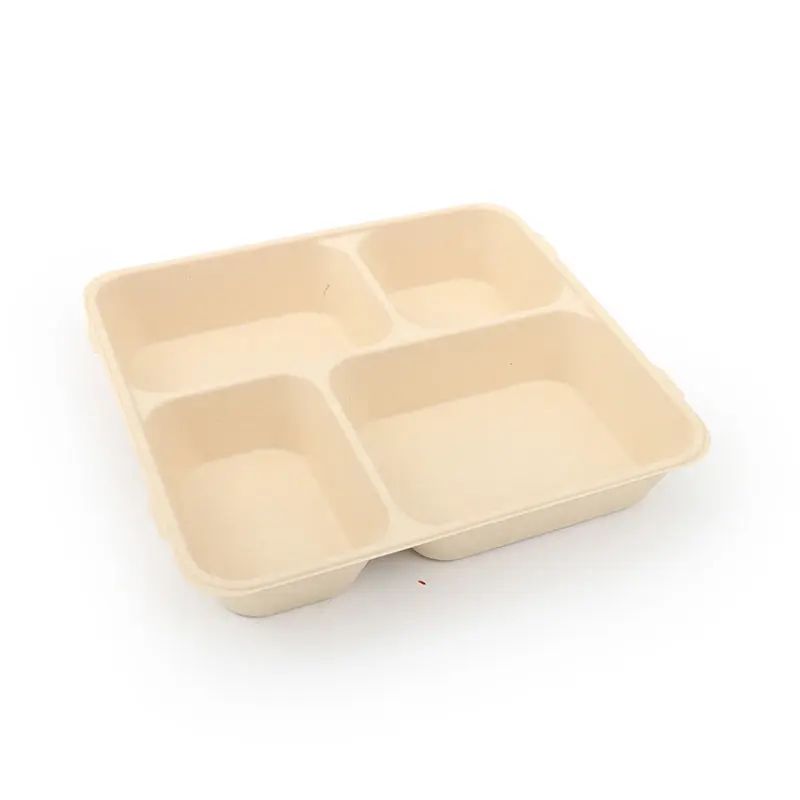 C71-3970-A
C71-3970-A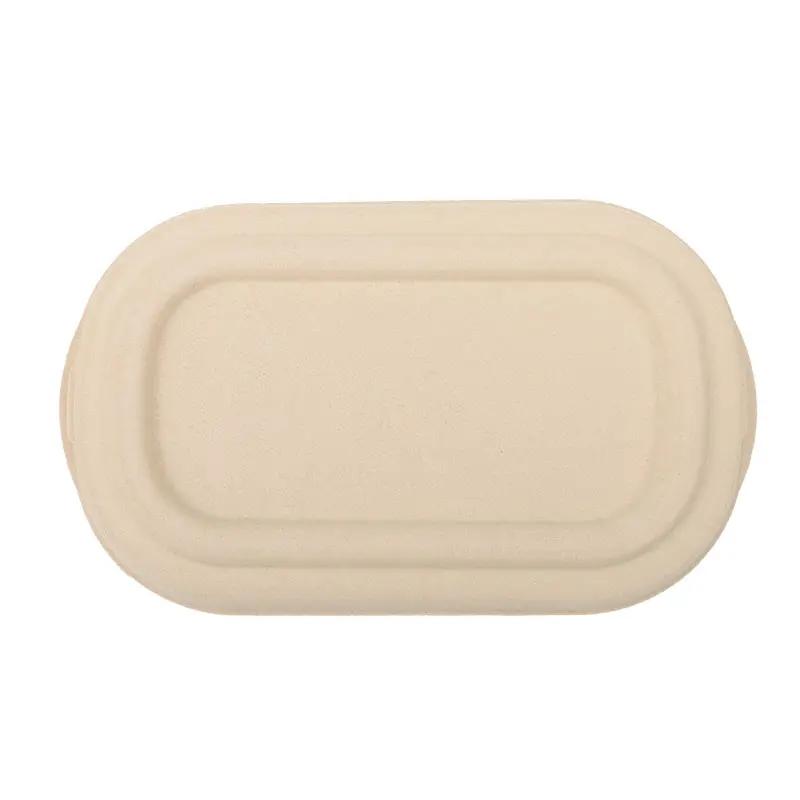 C31-0057-B
C31-0057-B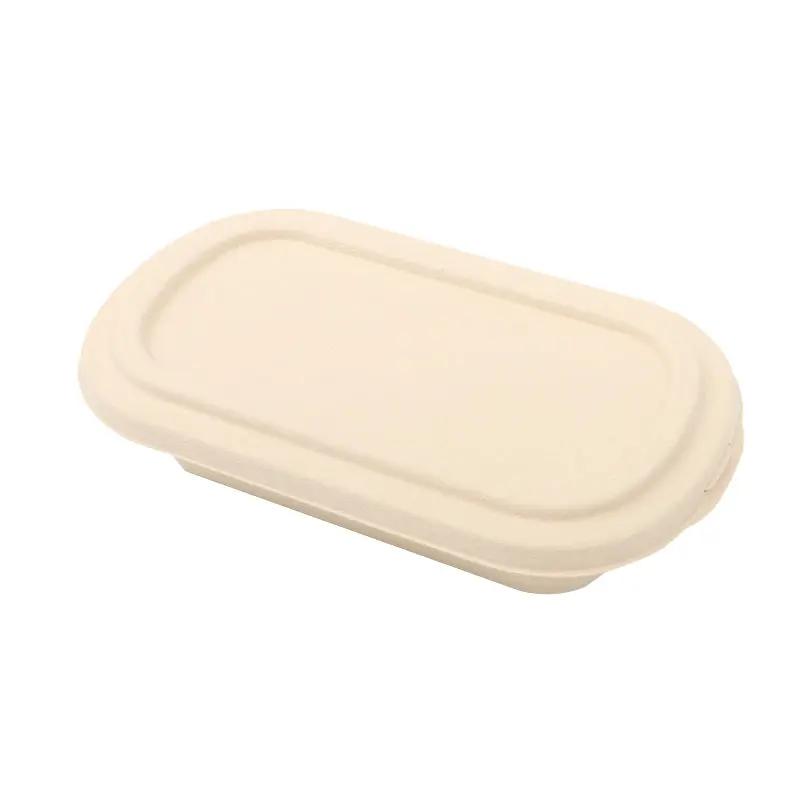 C31-0060-B
C31-0060-B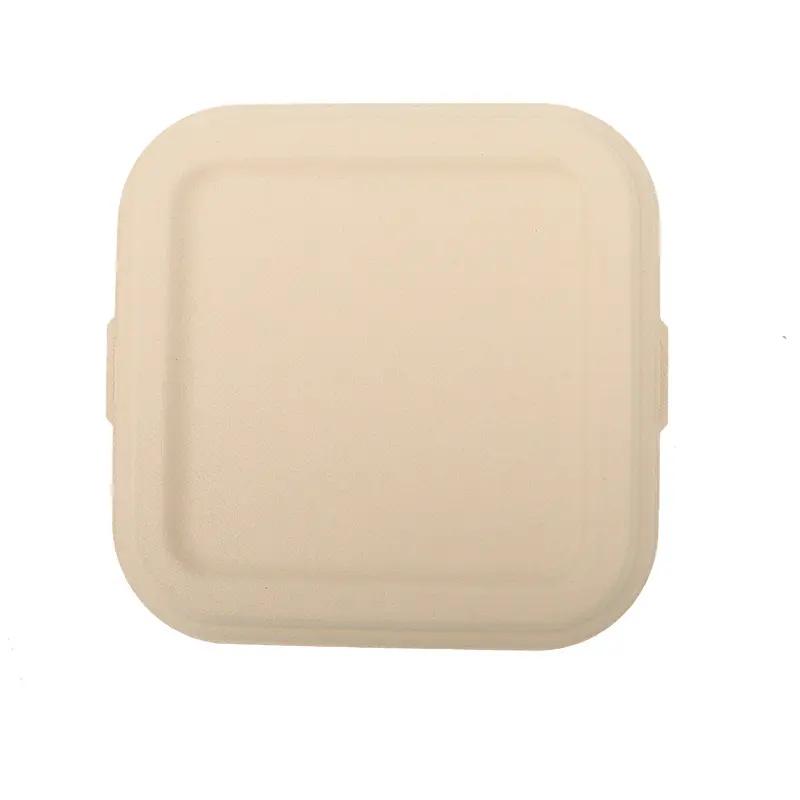 C31-0930-B
C31-0930-B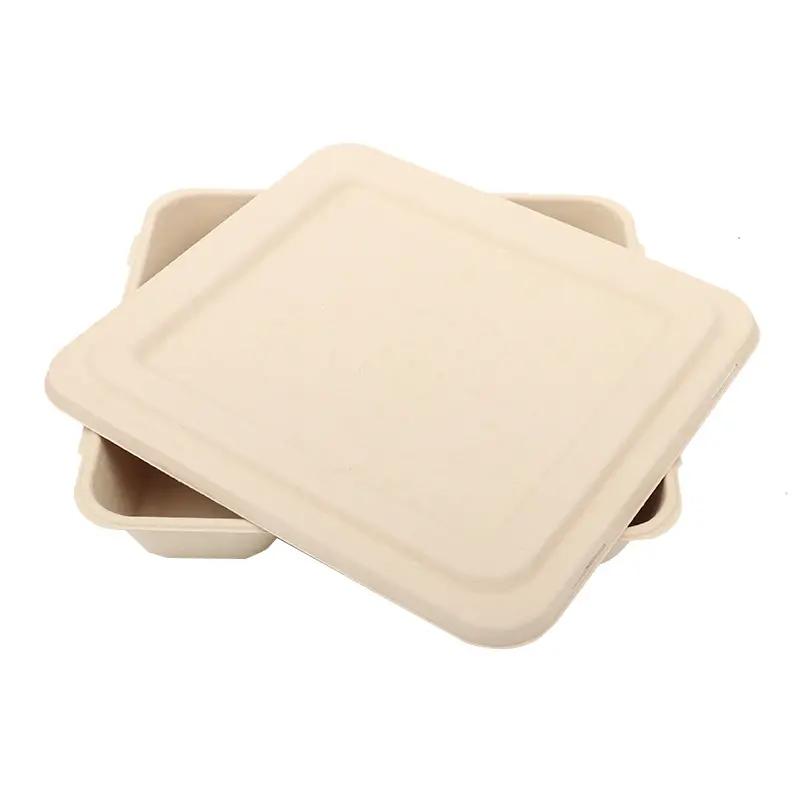 C71-3970-B
C71-3970-B Mult-Part Box
Mult-Part Box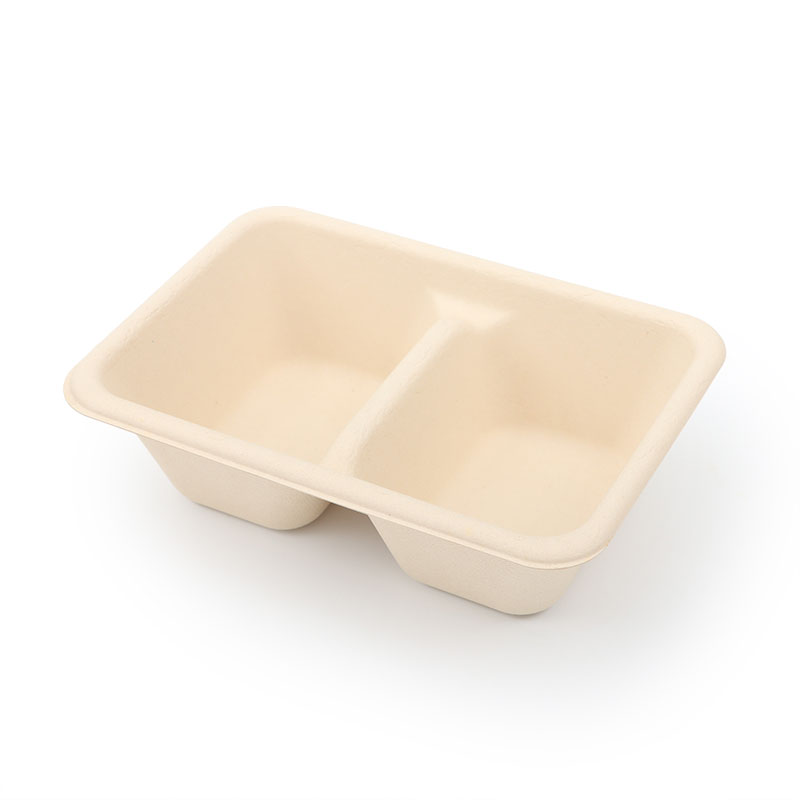 C31-0071-A
C31-0071-A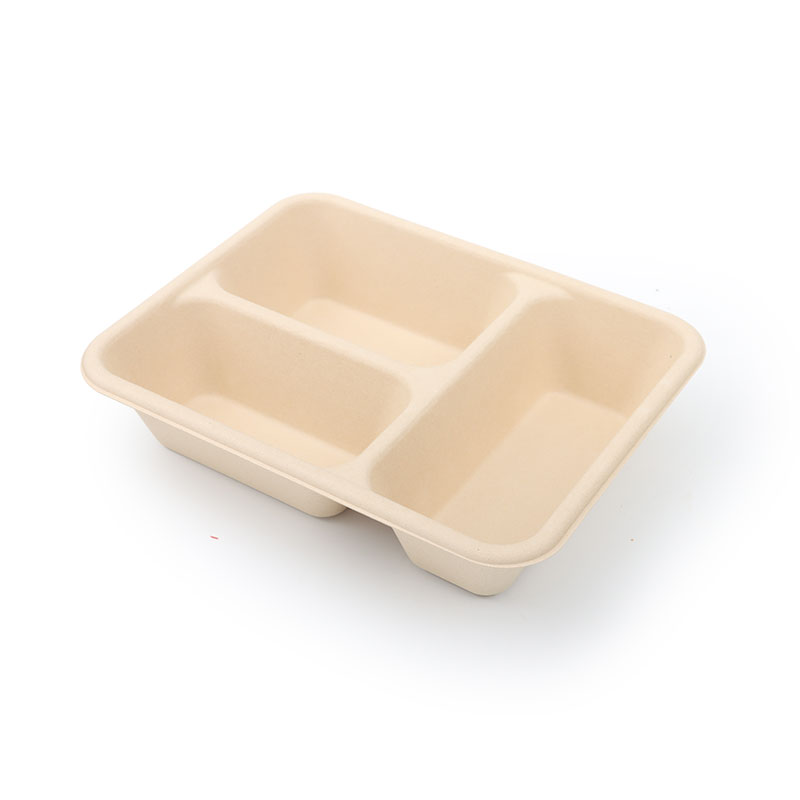 C31-0073-A
C31-0073-A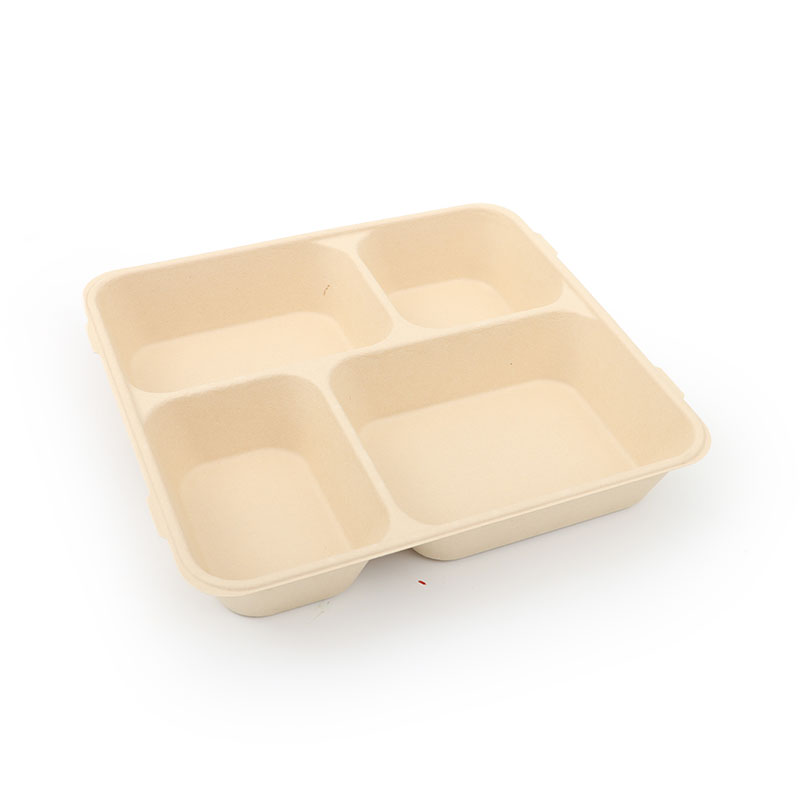 C71-3970-A
C71-3970-A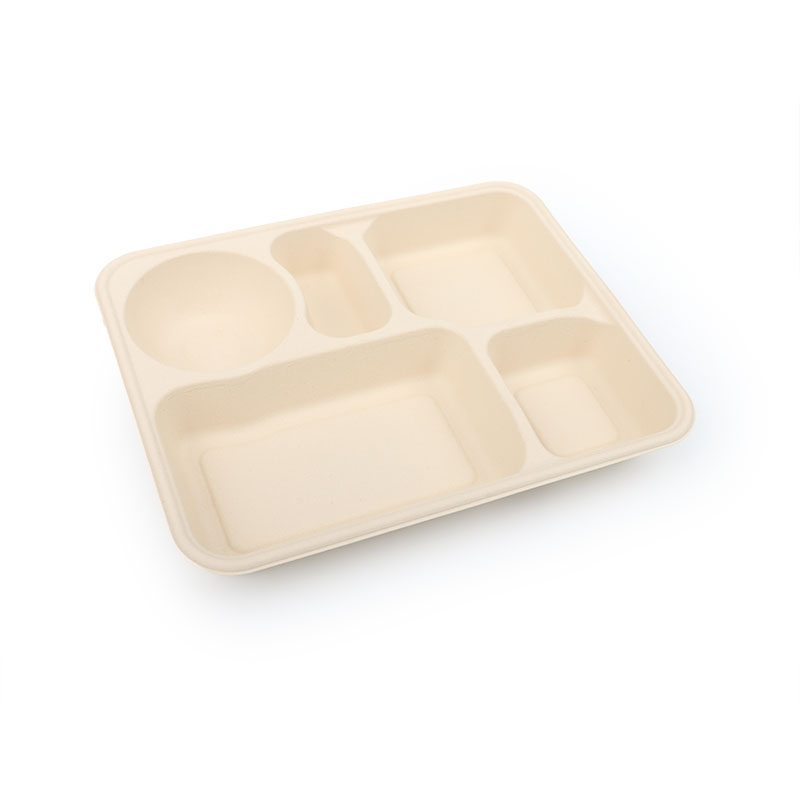 C71-3980A
C71-3980A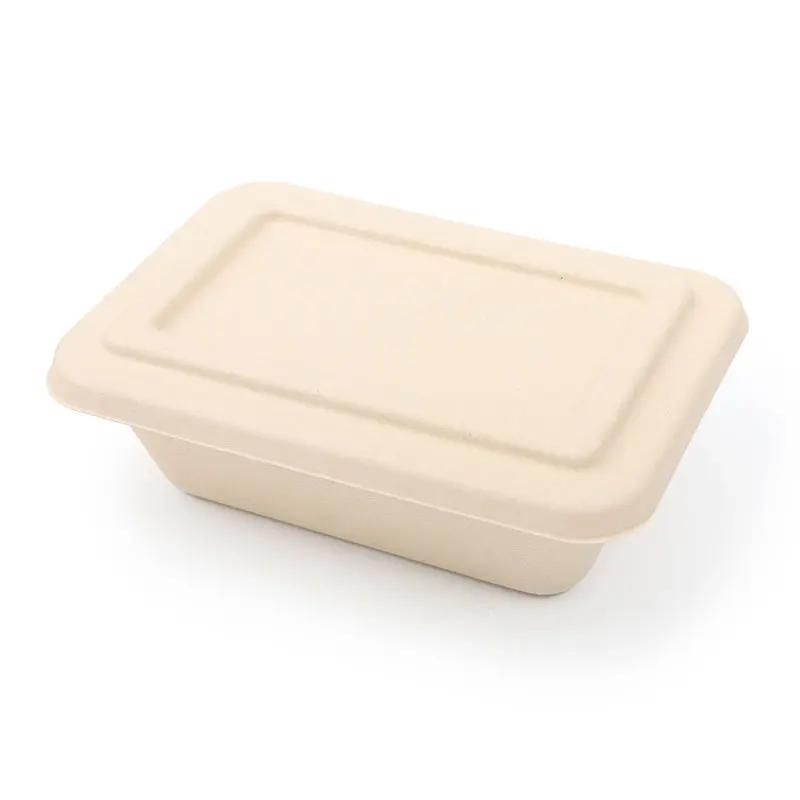 C31-0070-B
C31-0070-B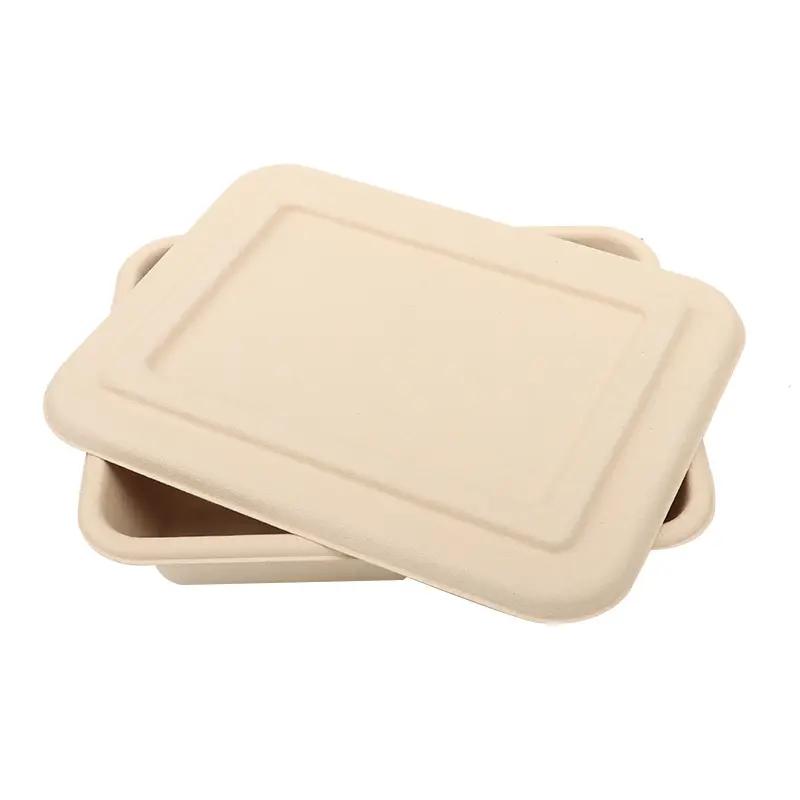 C31-0073-B
C31-0073-B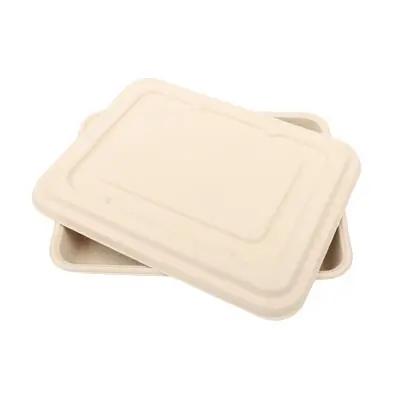 C71-3980-B
C71-3980-B Square Box
Square Box Box Without T buckle
Box Without T buckle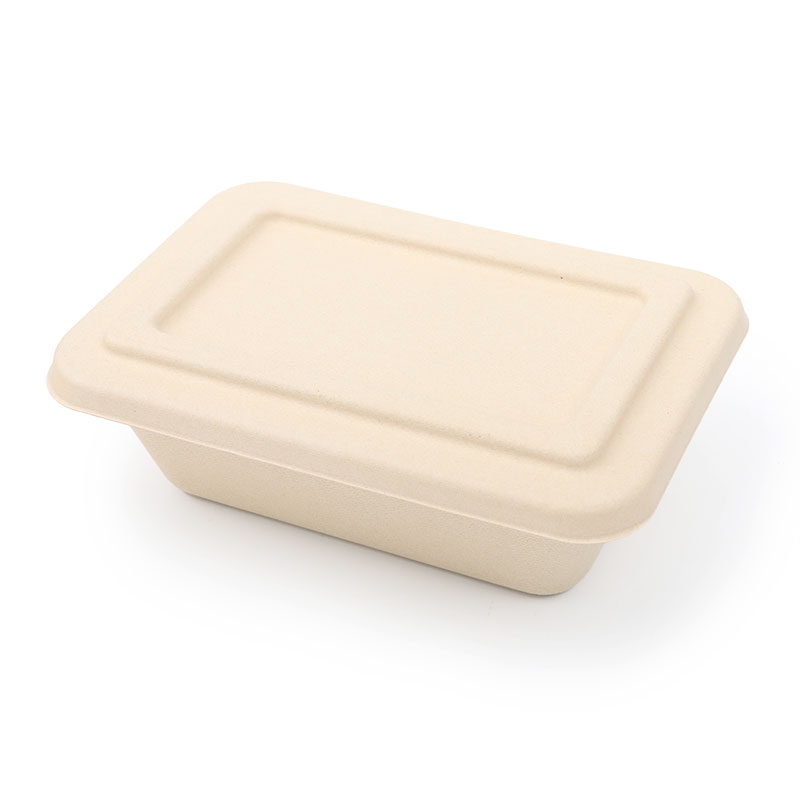 C31-0070-A
C31-0070-A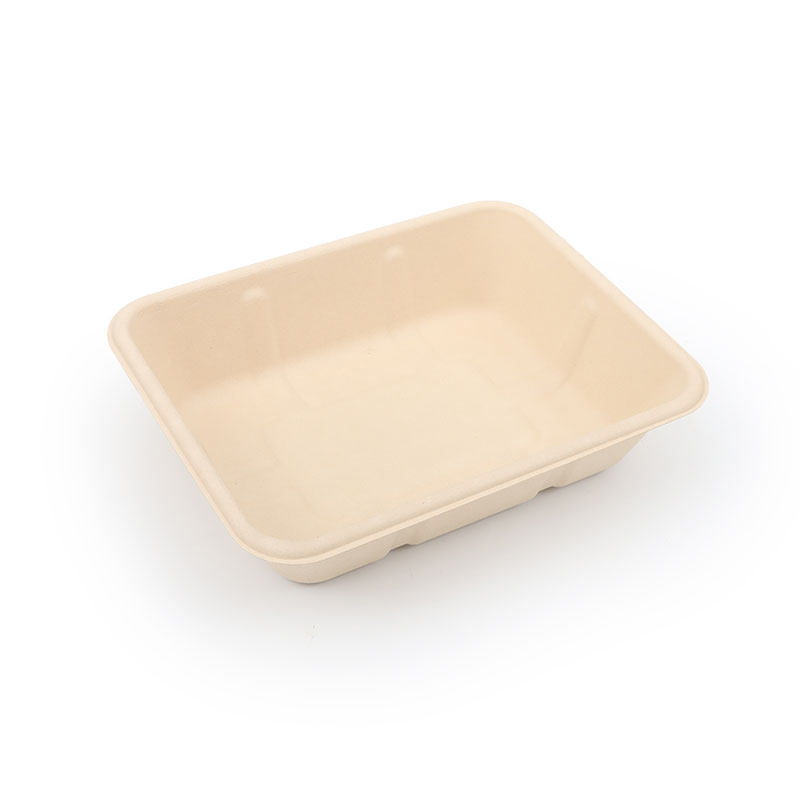 C31-0075-A
C31-0075-A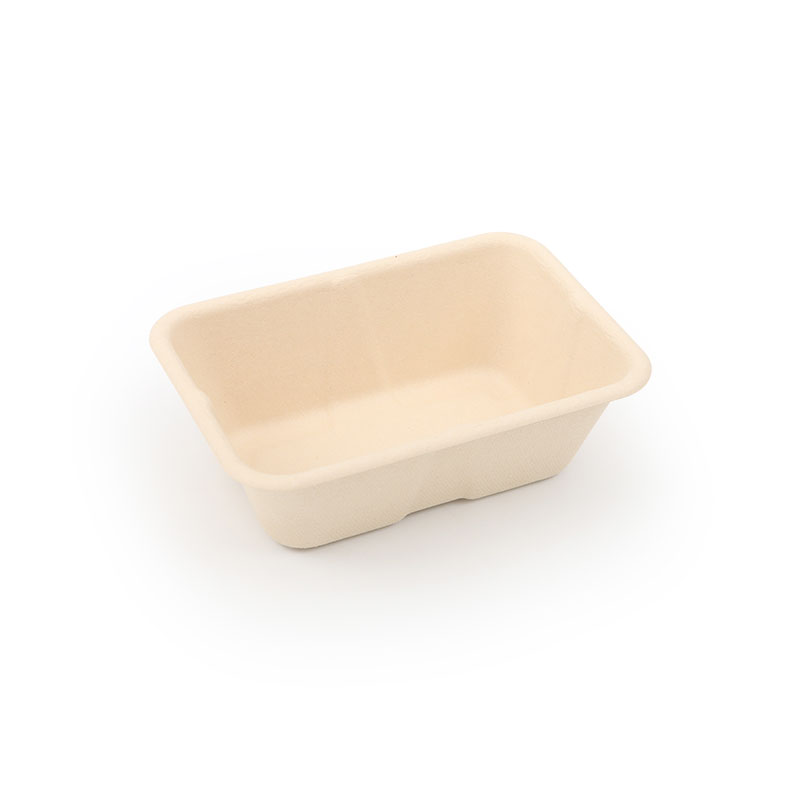 C31-2890-A
C31-2890-A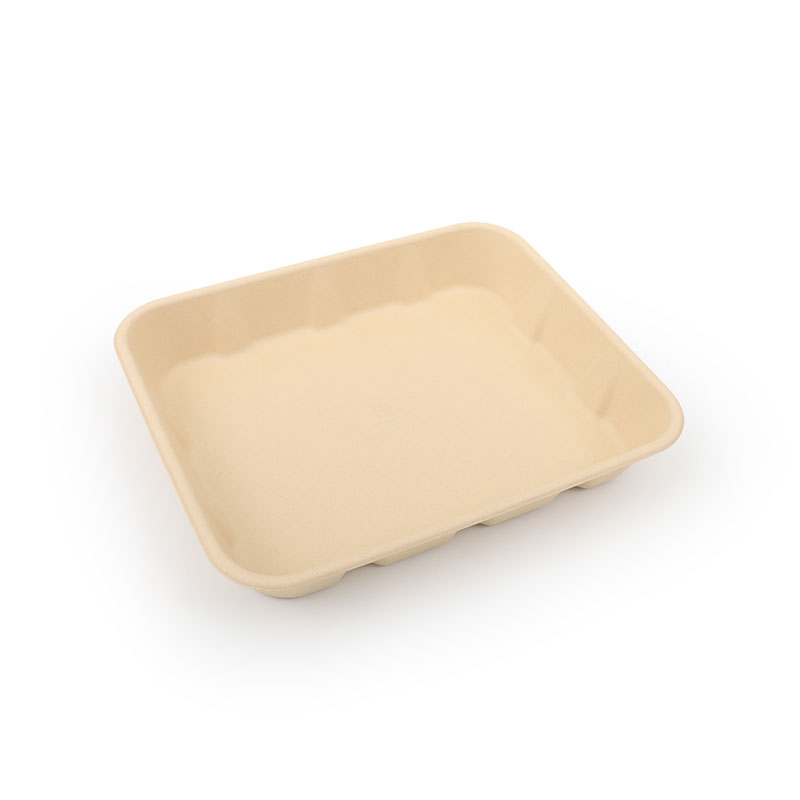 C31-3130-A
C31-3130-A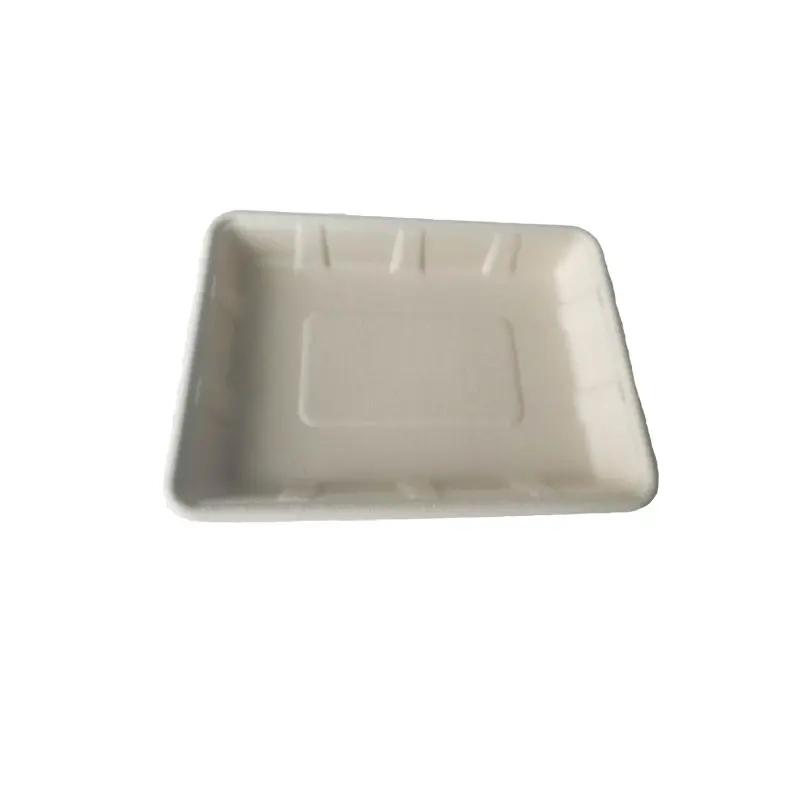 C71-4300-A
C71-4300-A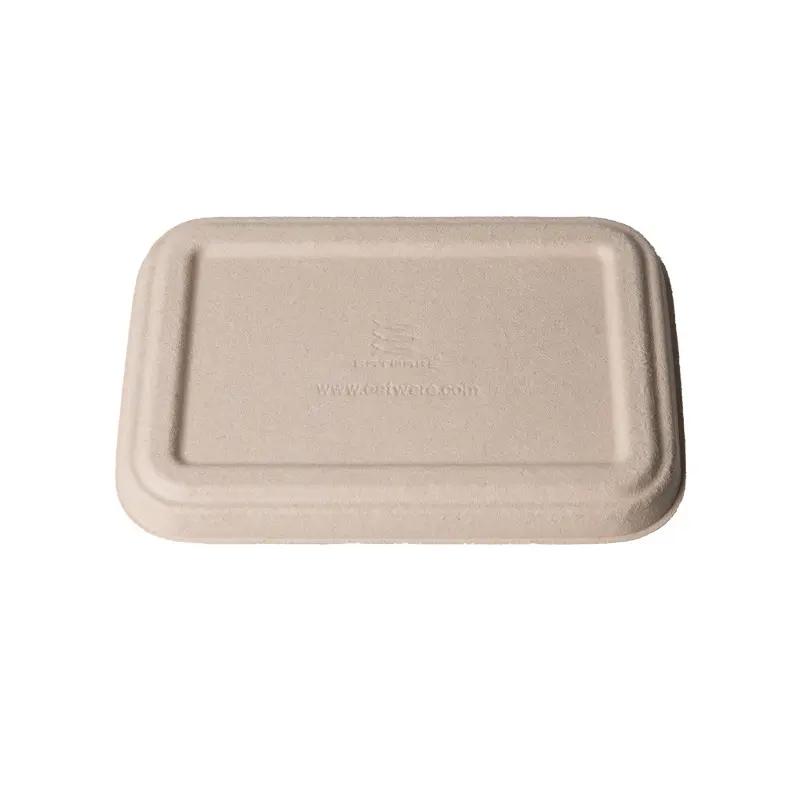 C31-2890-B
C31-2890-B One Part Box
One Part Box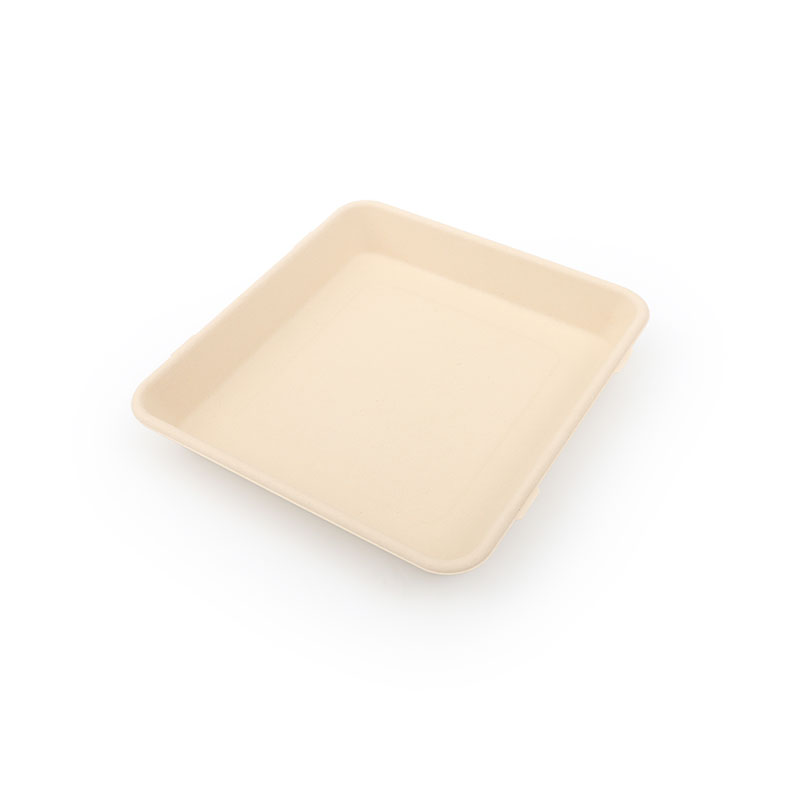 C31-0950-A
C31-0950-A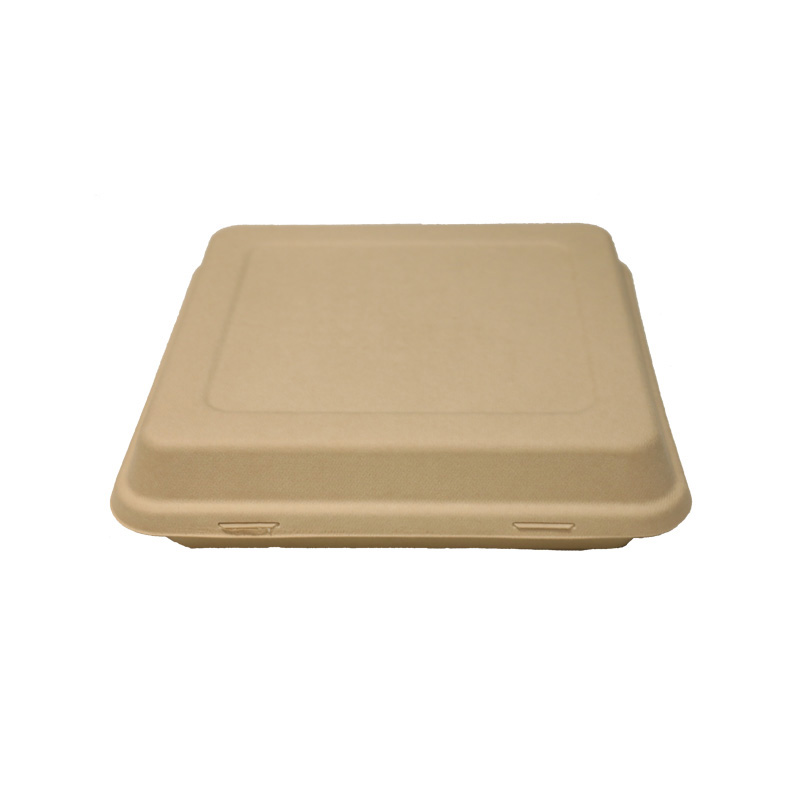 C31-0950-B
C31-0950-B Cake Bread Snack Tray Series
Cake Bread Snack Tray Series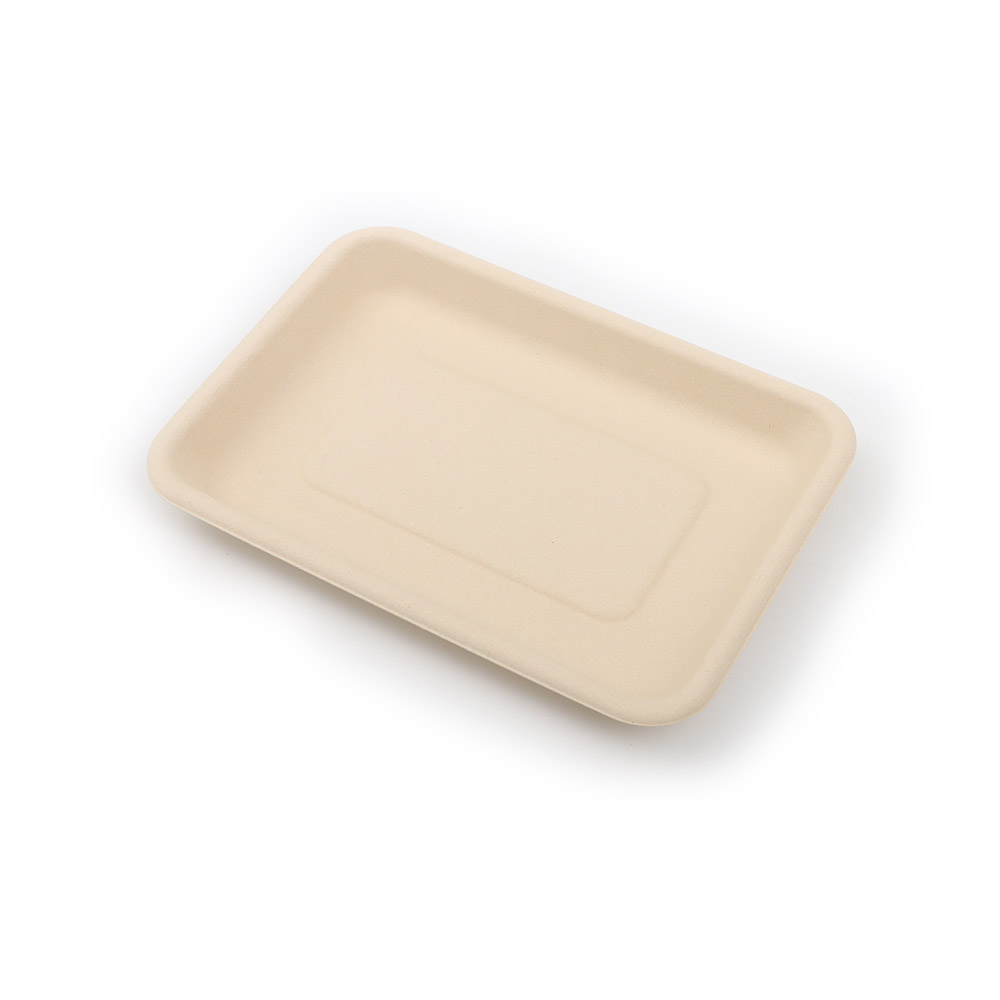 C71-0020-A
C71-0020-A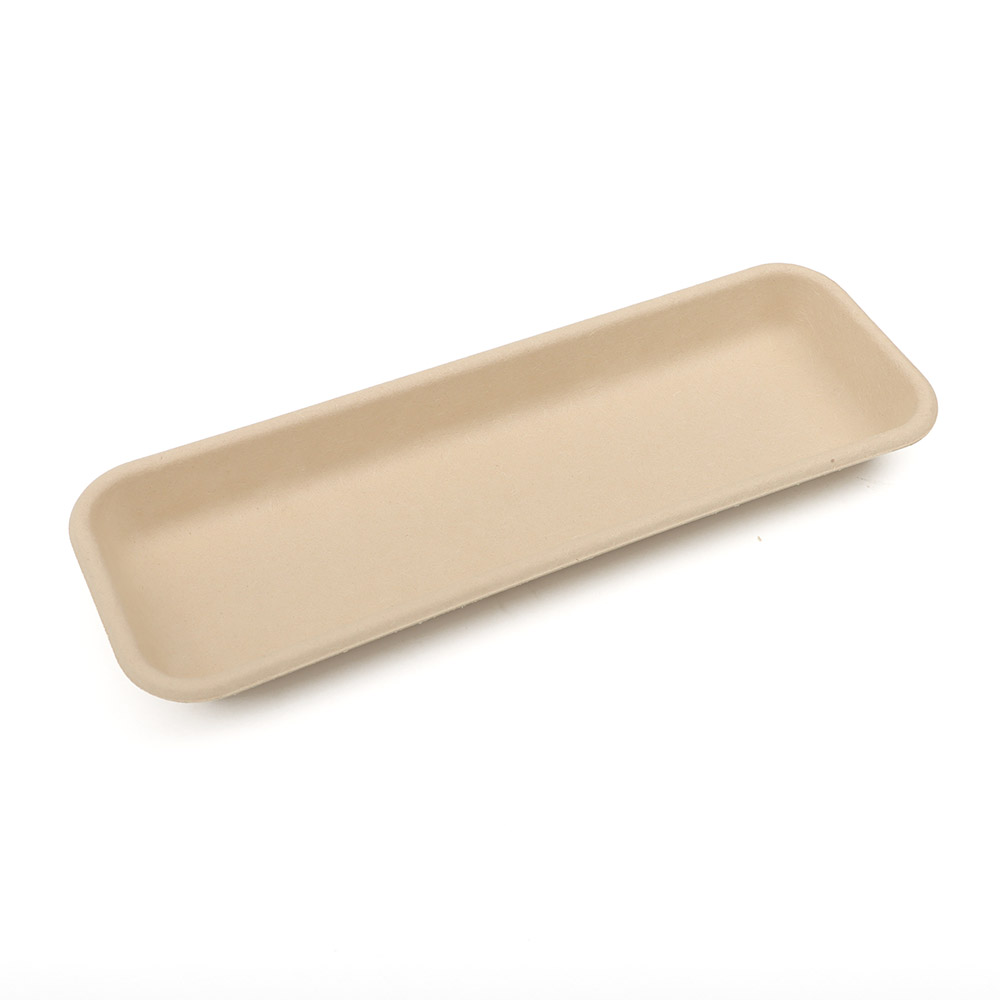 C71-0100-A
C71-0100-A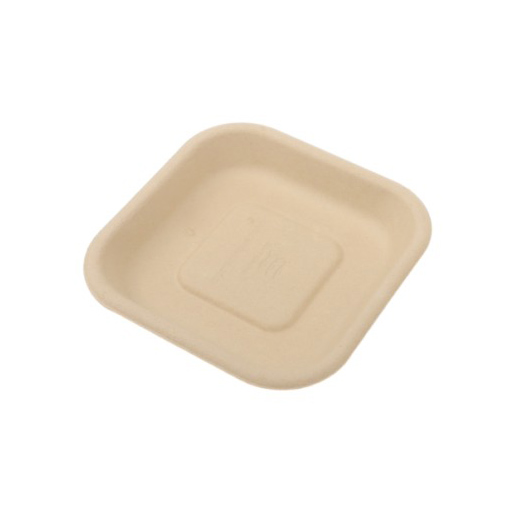 C71-0380-A
C71-0380-A Fruit And Vegetable Tray Series
Fruit And Vegetable Tray Series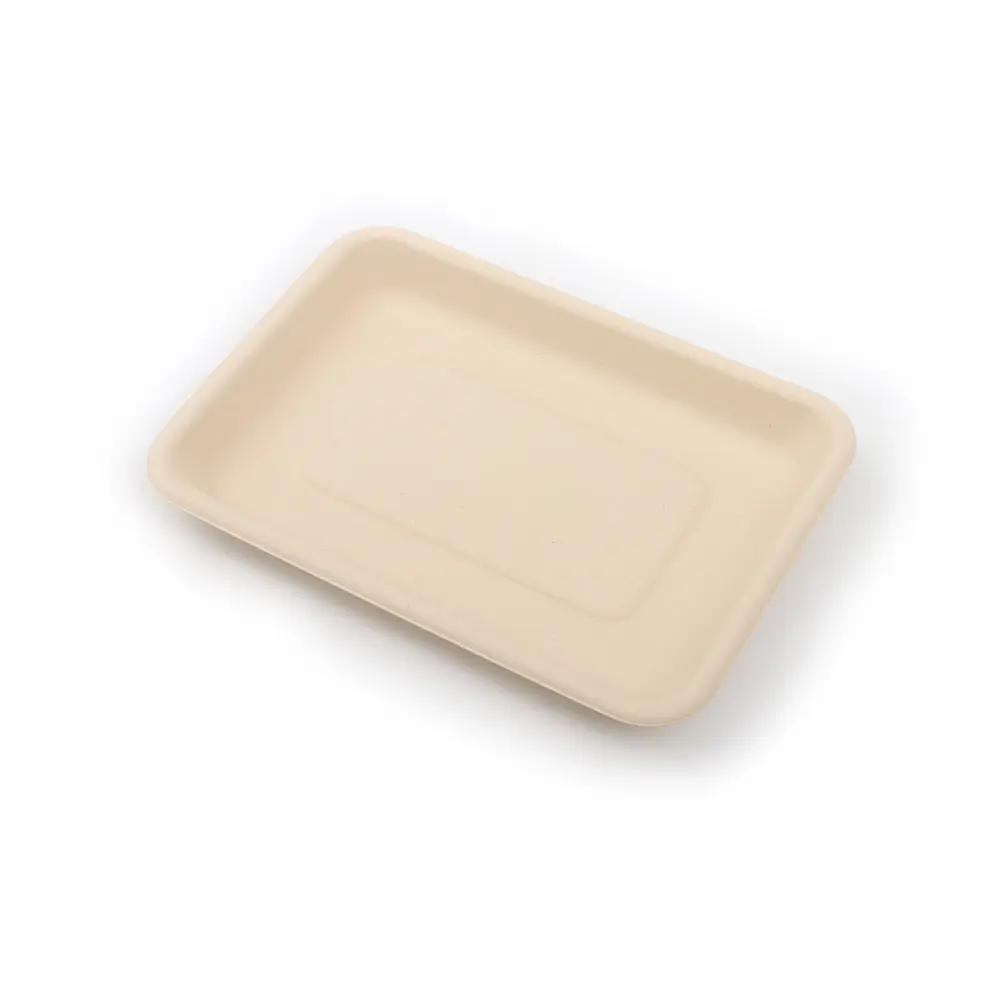 C71-0490-A
C71-0490-A Sushi Tray Series
Sushi Tray Series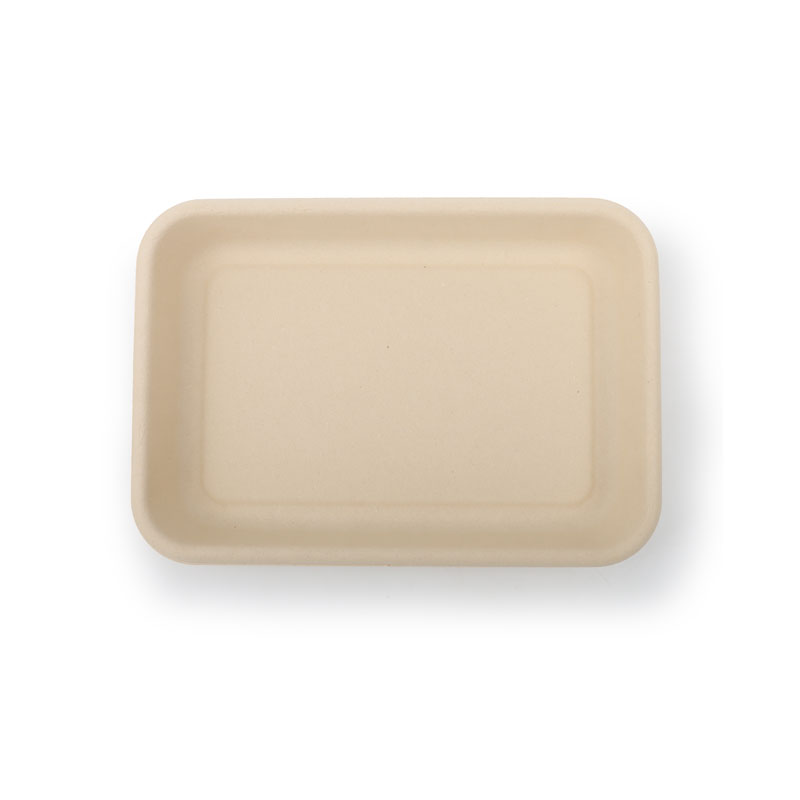 C71-2930-A
C71-2930-A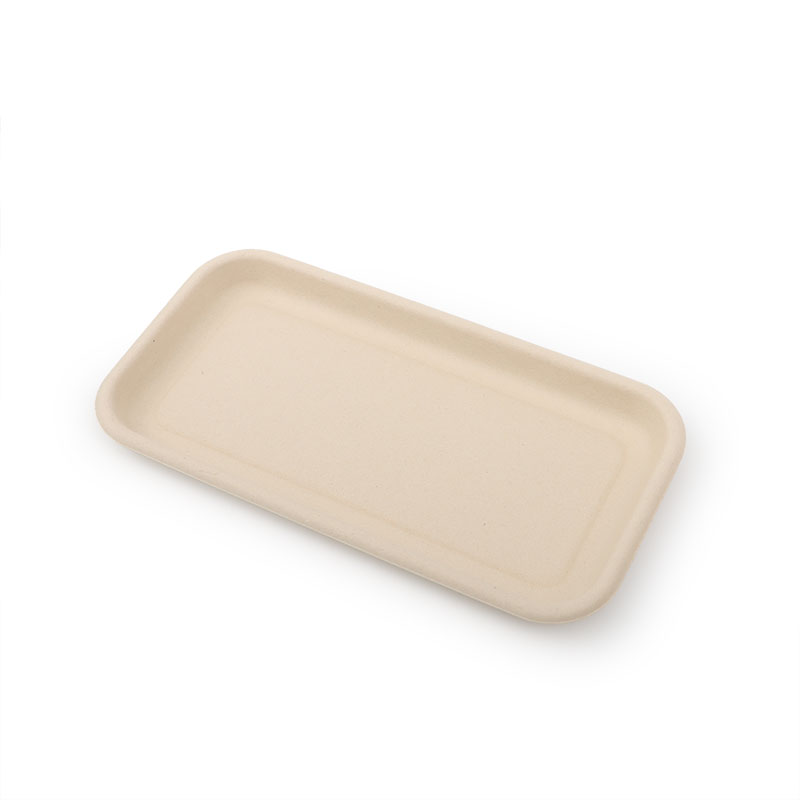 C71-2940-A
C71-2940-A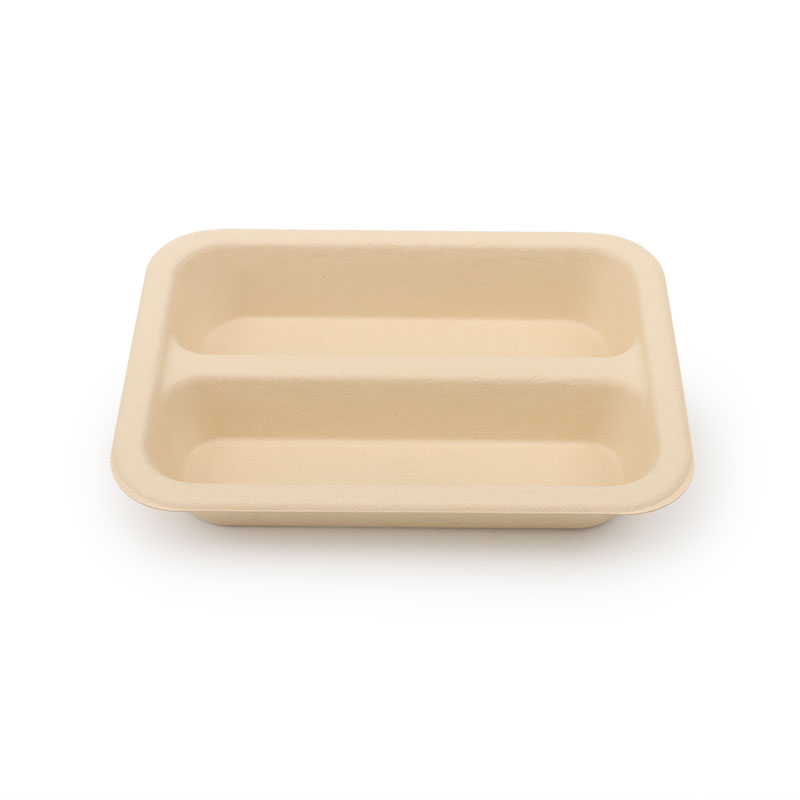 C71-2990-A
C71-2990-A Small Round Plate Series
Small Round Plate Series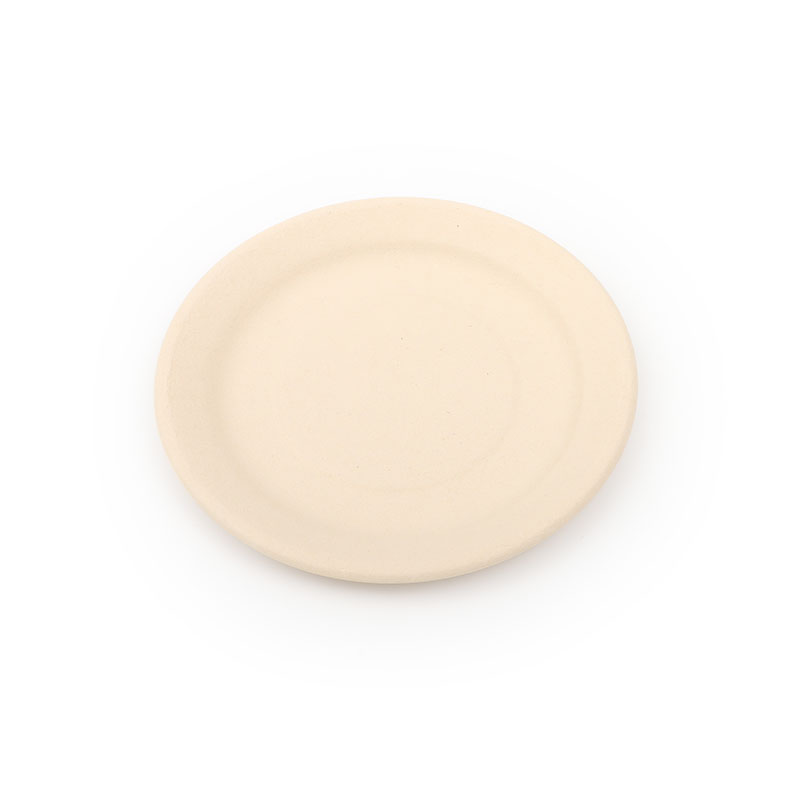 C51-0030-A
C51-0030-A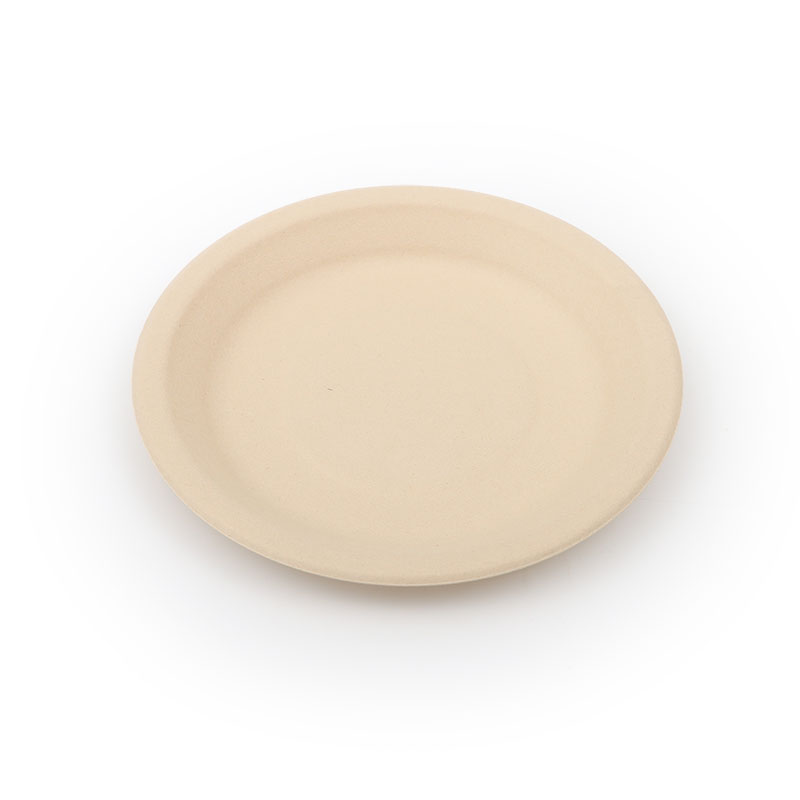 C51-0850-A
C51-0850-A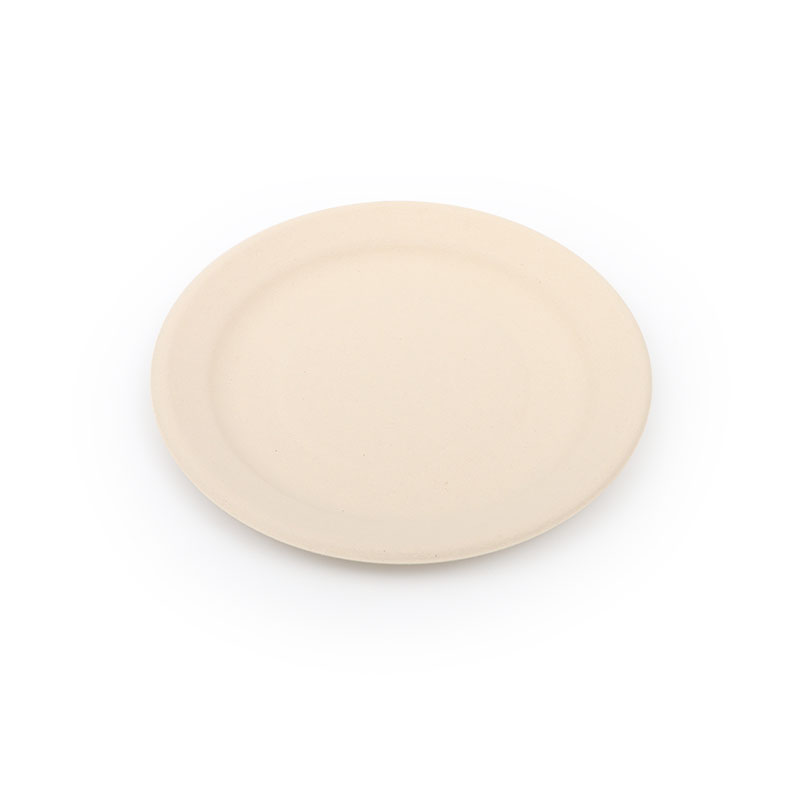 C51-0031-A
C51-0031-A Middle Round Plate Series
Middle Round Plate Series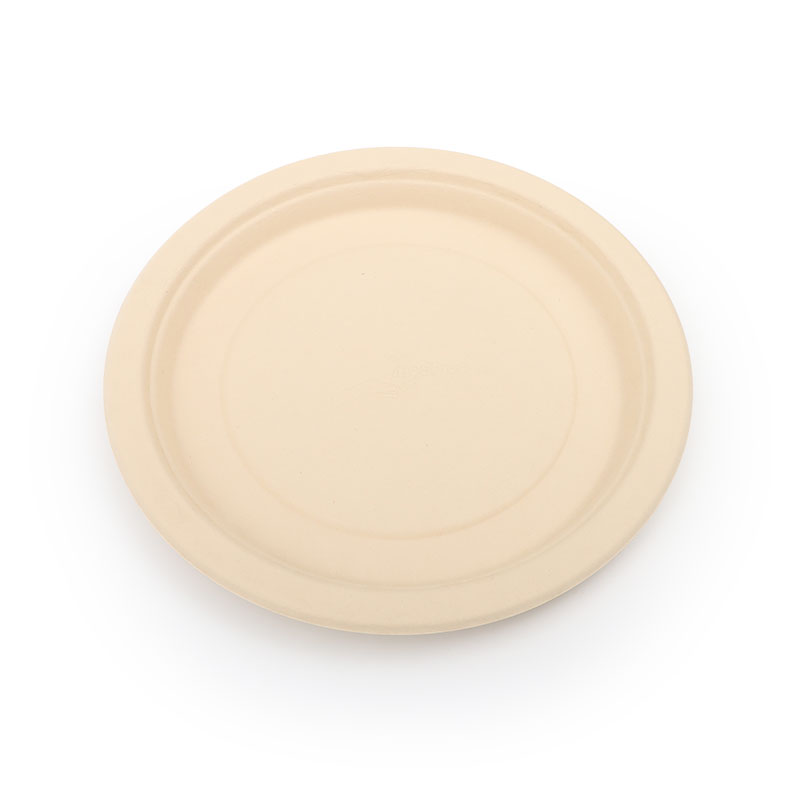 C51-0250-A
C51-0250-A Big Round Plate Series
Big Round Plate Series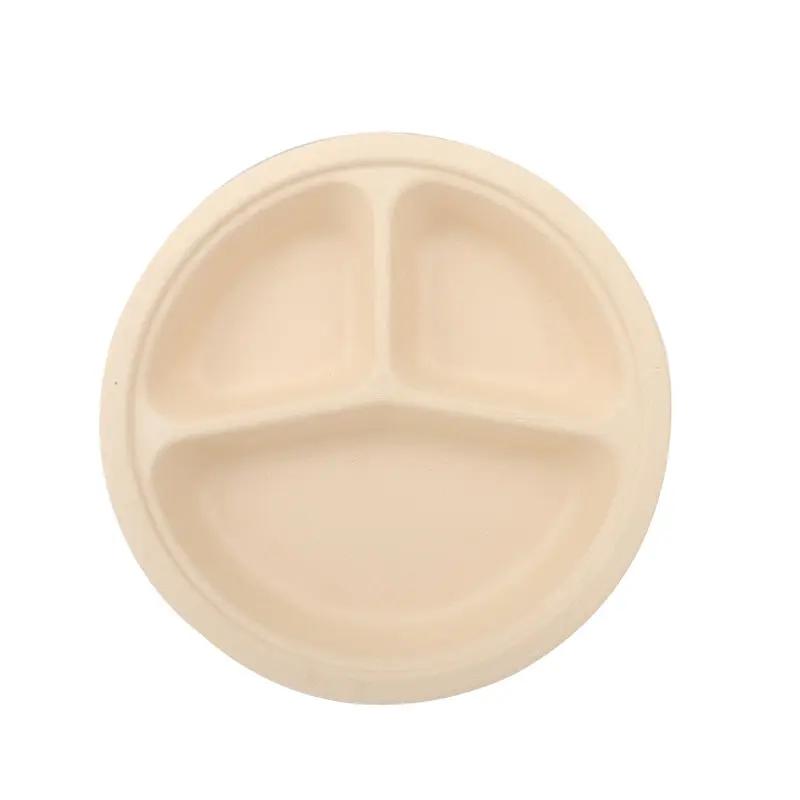 C51-1790-A
C51-1790-A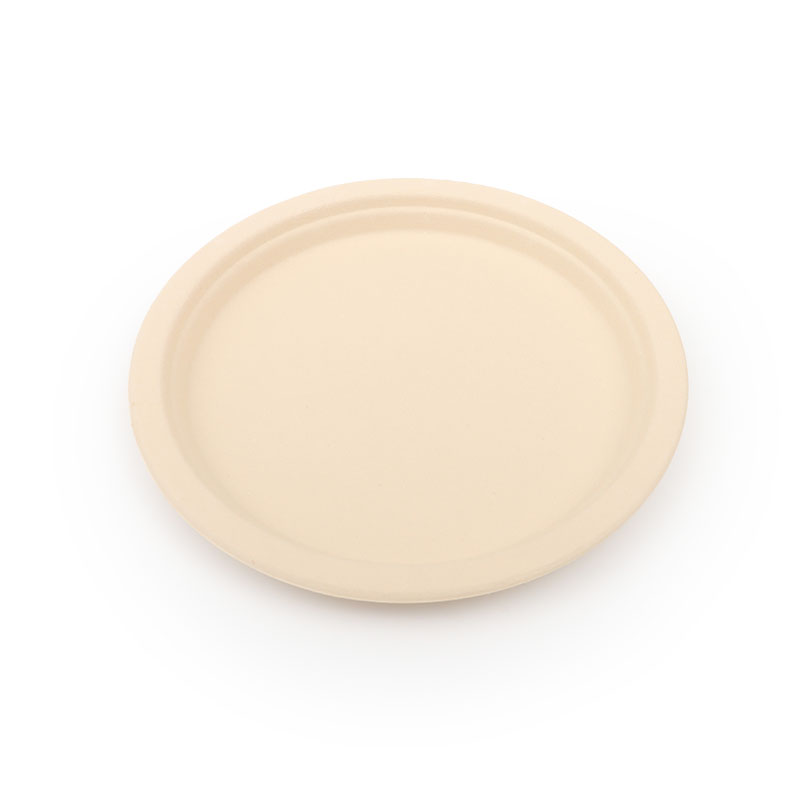 C51-1740-A
C51-1740-A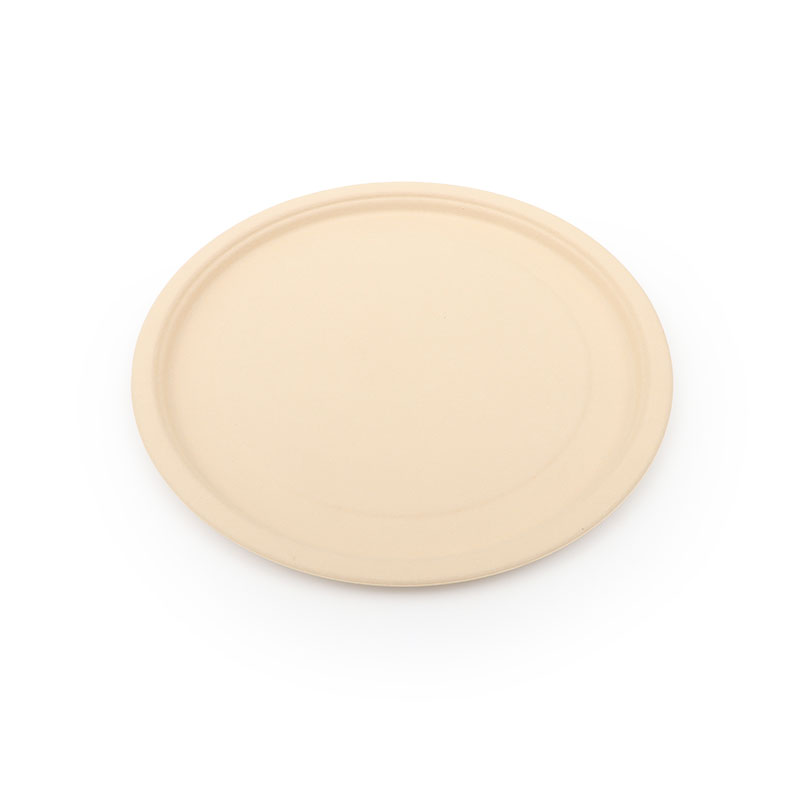 C51-0621-A
C51-0621-A Bigger Bowl
Bigger Bowl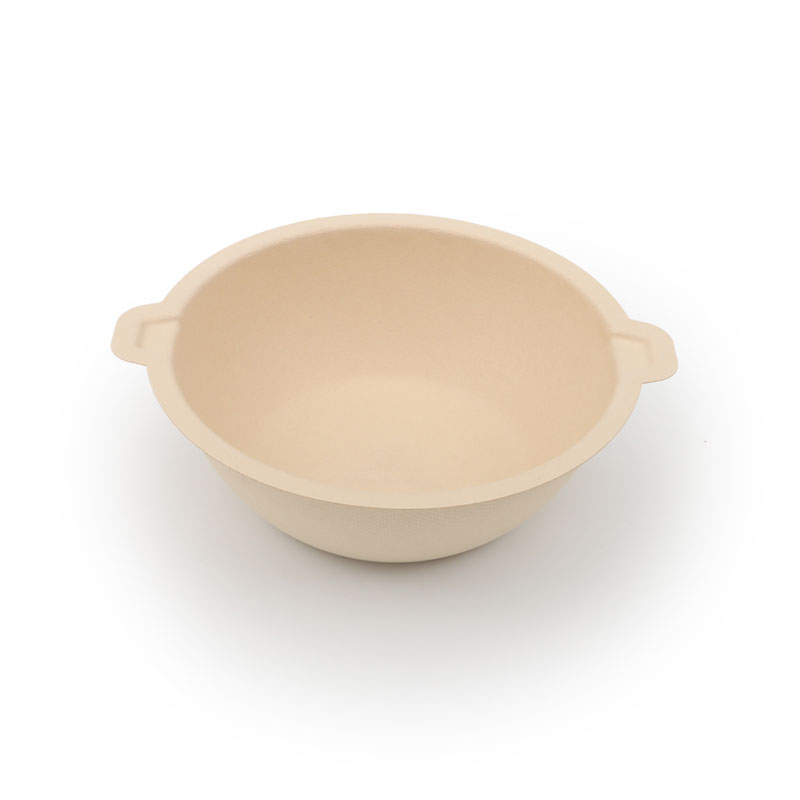 C11-2020-A
C11-2020-A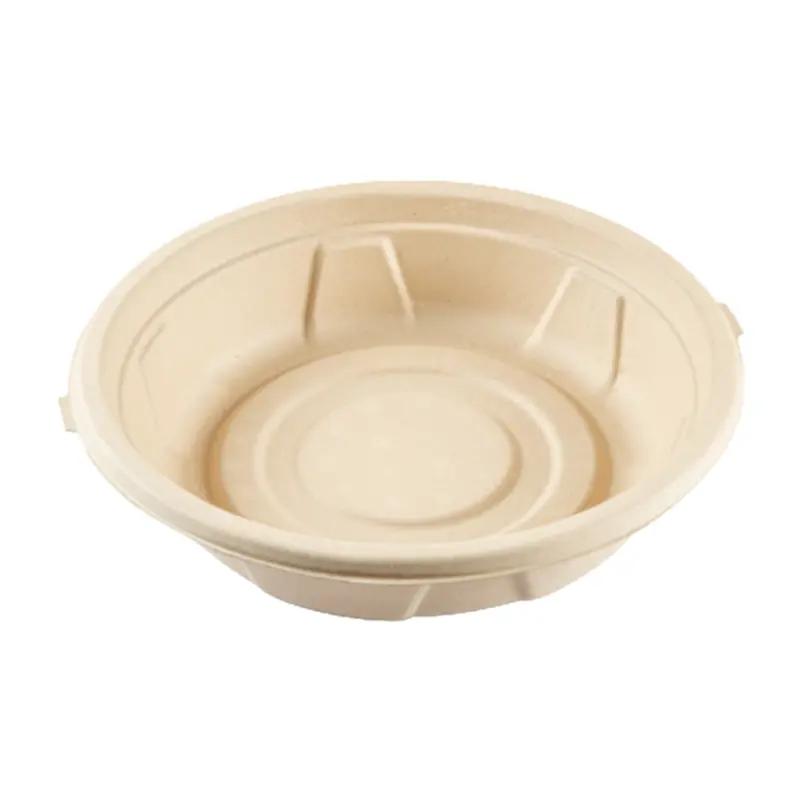 C11-2021-A
C11-2021-A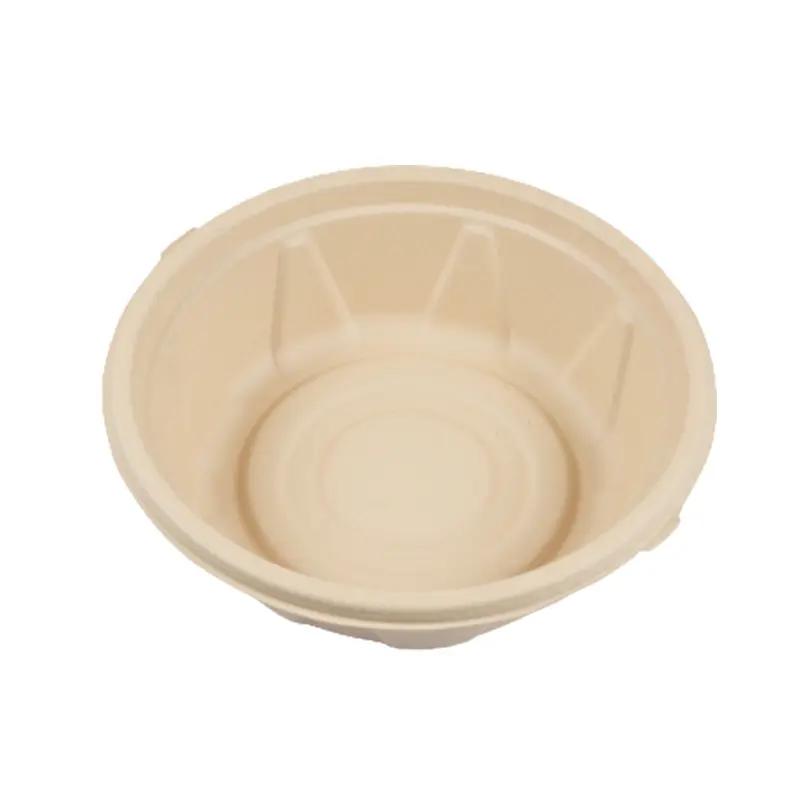 C11-2022-A
C11-2022-A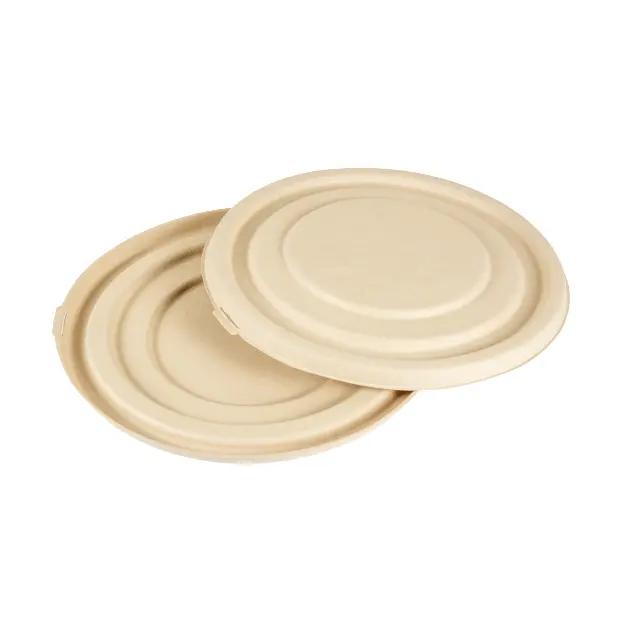 C11-2022-B
C11-2022-B Middle Bowl
Middle Bowl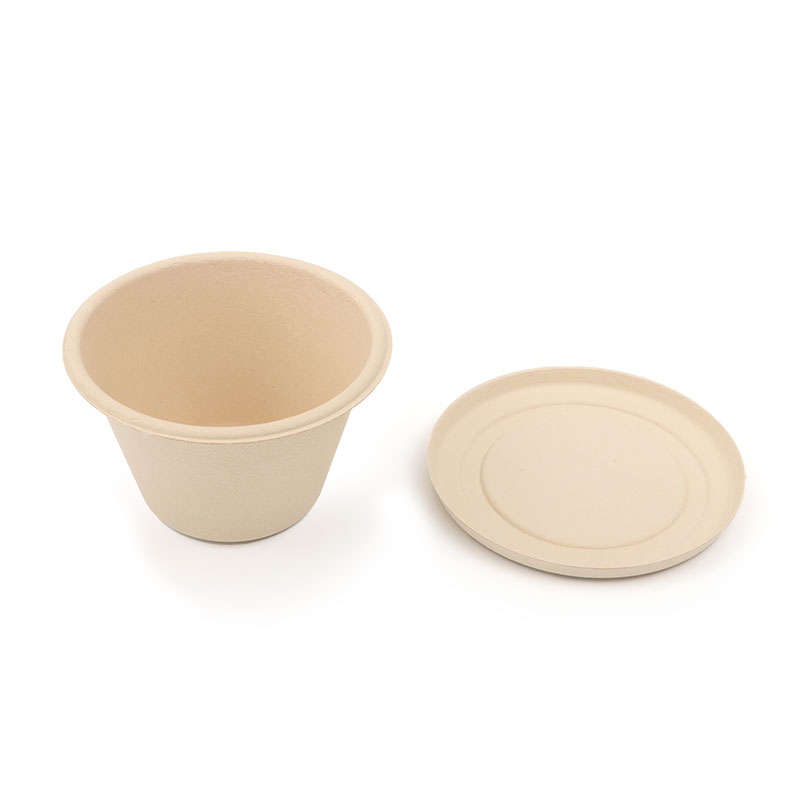 C11-0040-A
C11-0040-A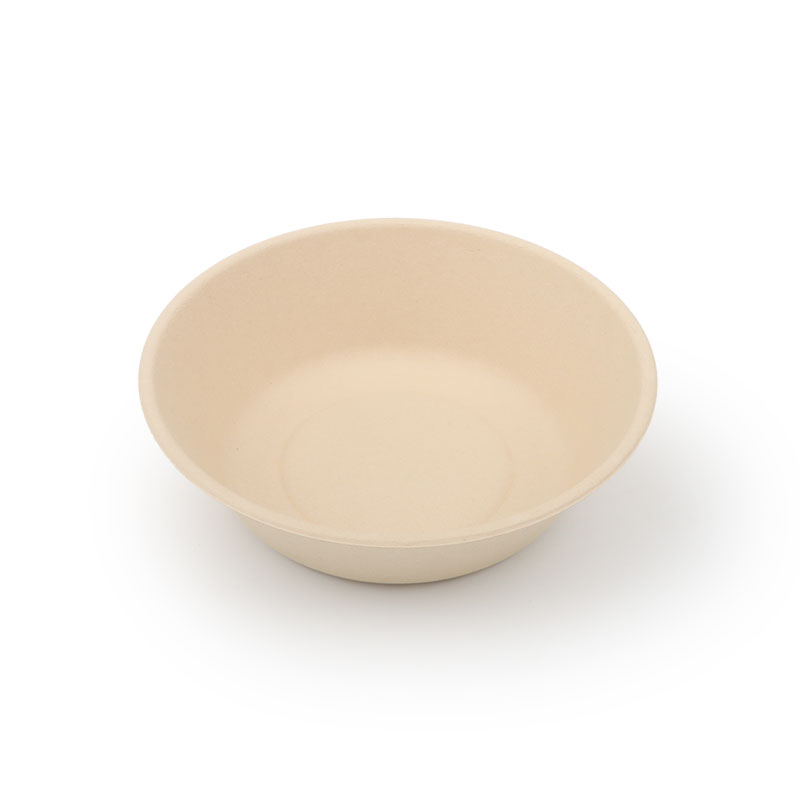 C11-1430-A
C11-1430-A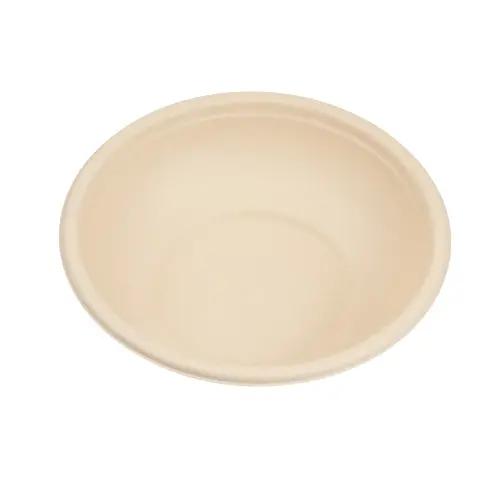 C11-2015-A
C11-2015-A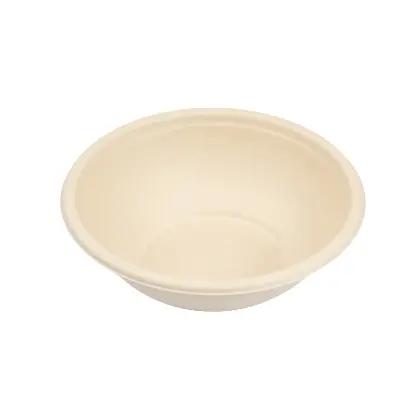 C11-2016-A
C11-2016-A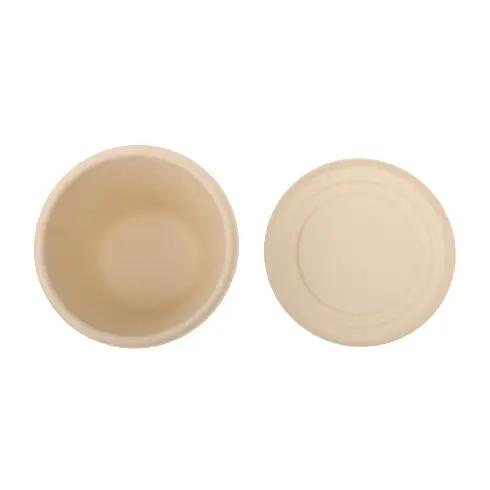 C11-0040-B
C11-0040-B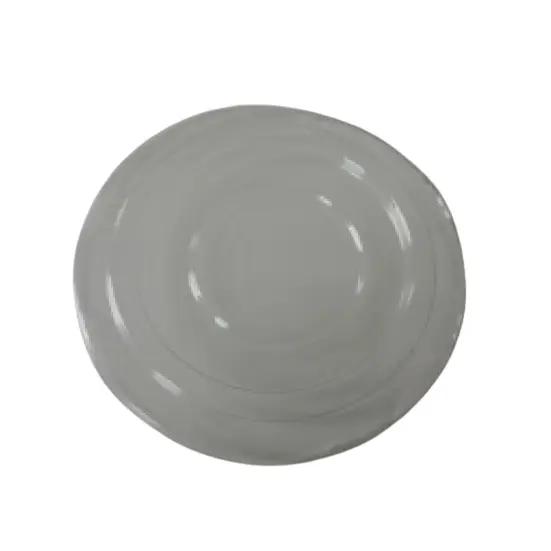 C11-0040-B - PET
C11-0040-B - PET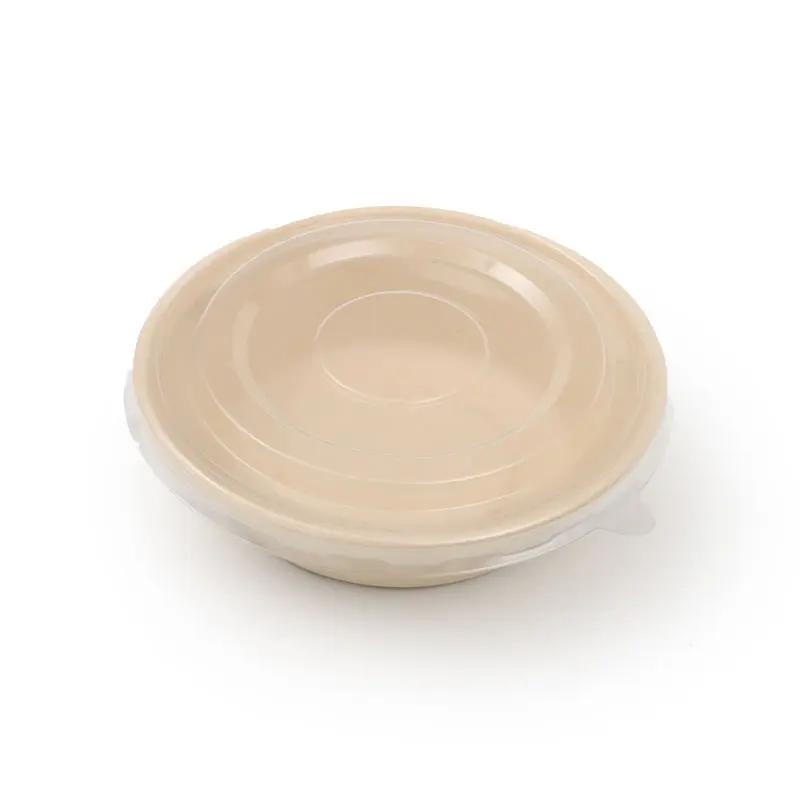 C11-1430-B
C11-1430-B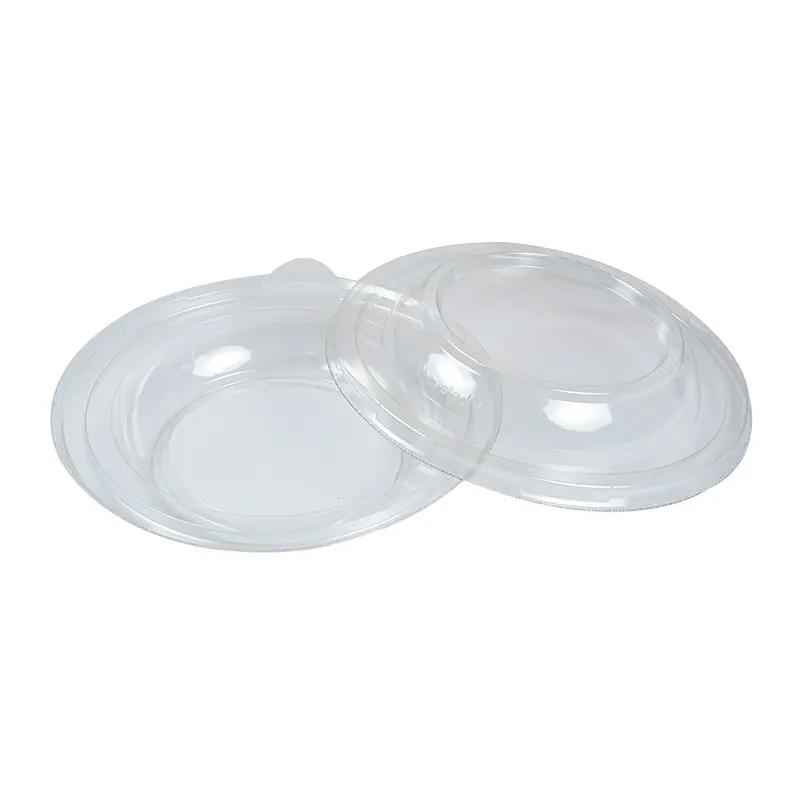 C11-2015-B-PET
C11-2015-B-PET Small Bowl
Small Bowl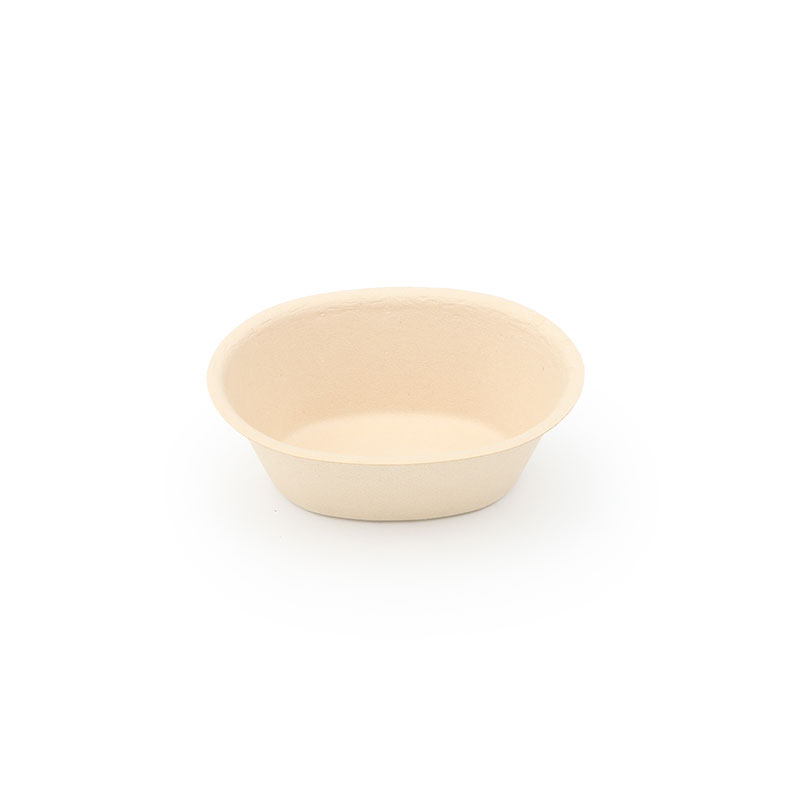 C11-0050-A
C11-0050-A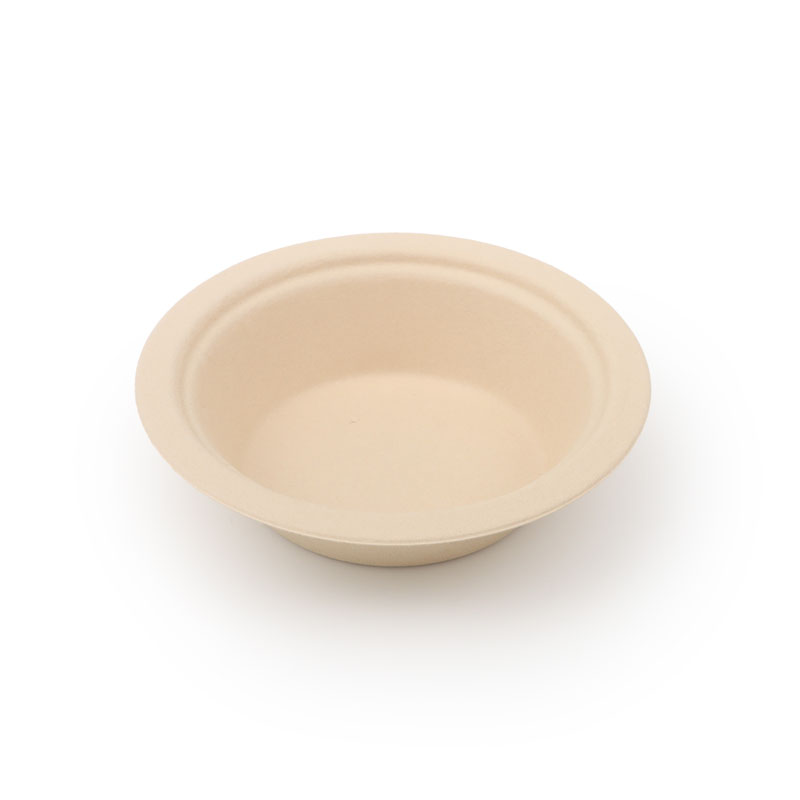 C11-1420-A
C11-1420-A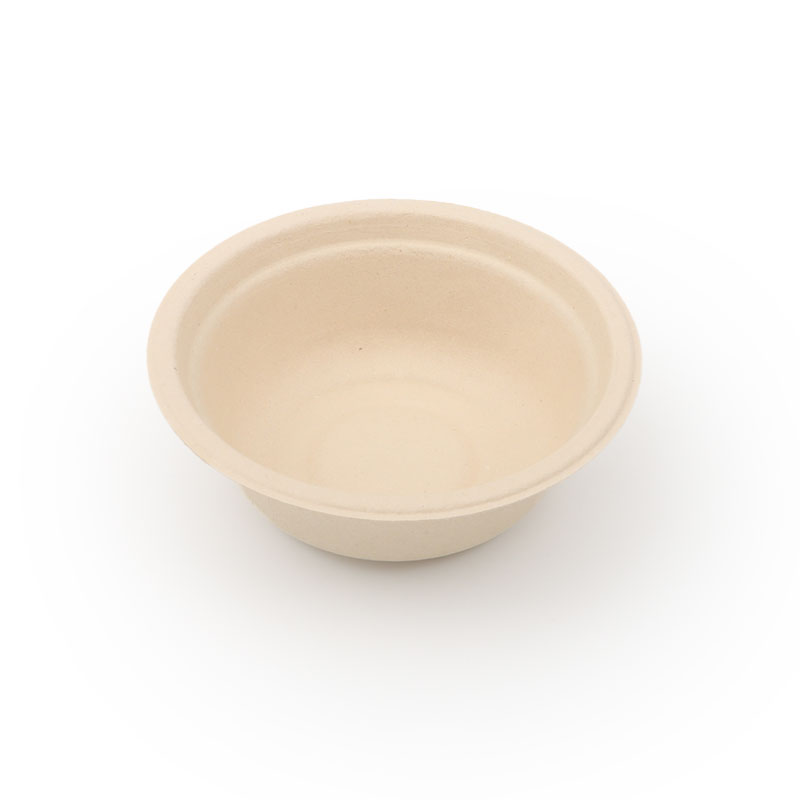 C11-1421-A
C11-1421-A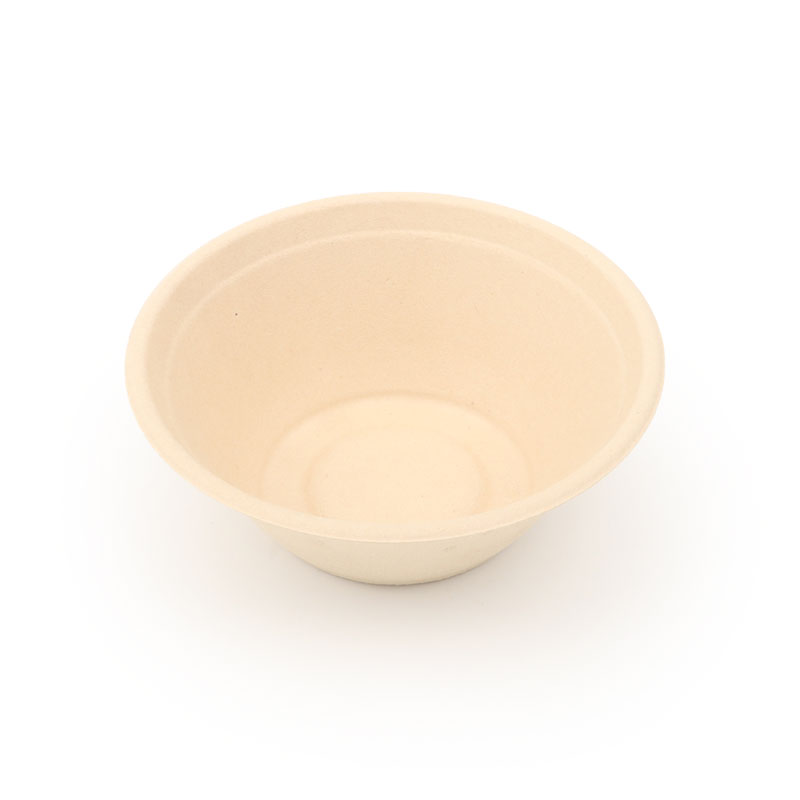 C11-1422-A
C11-1422-A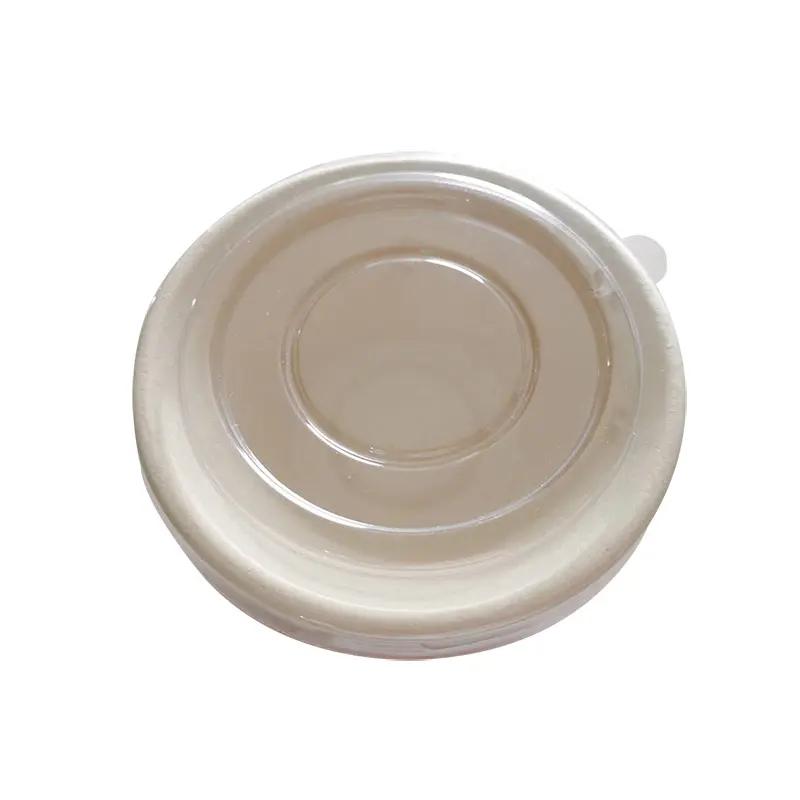 C11-1422-B
C11-1422-B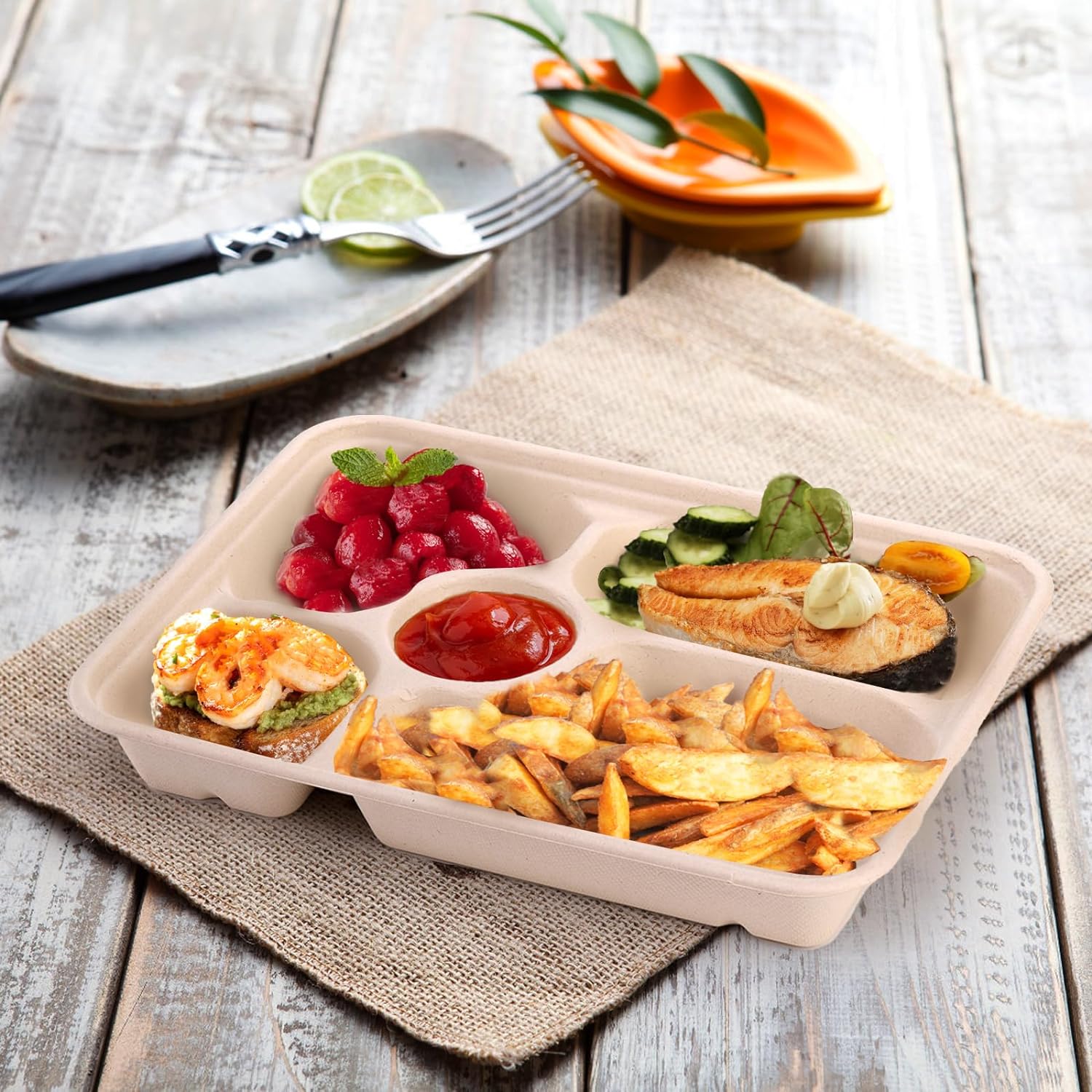 Bagasse Lunch Boxes
Bagasse Lunch Boxes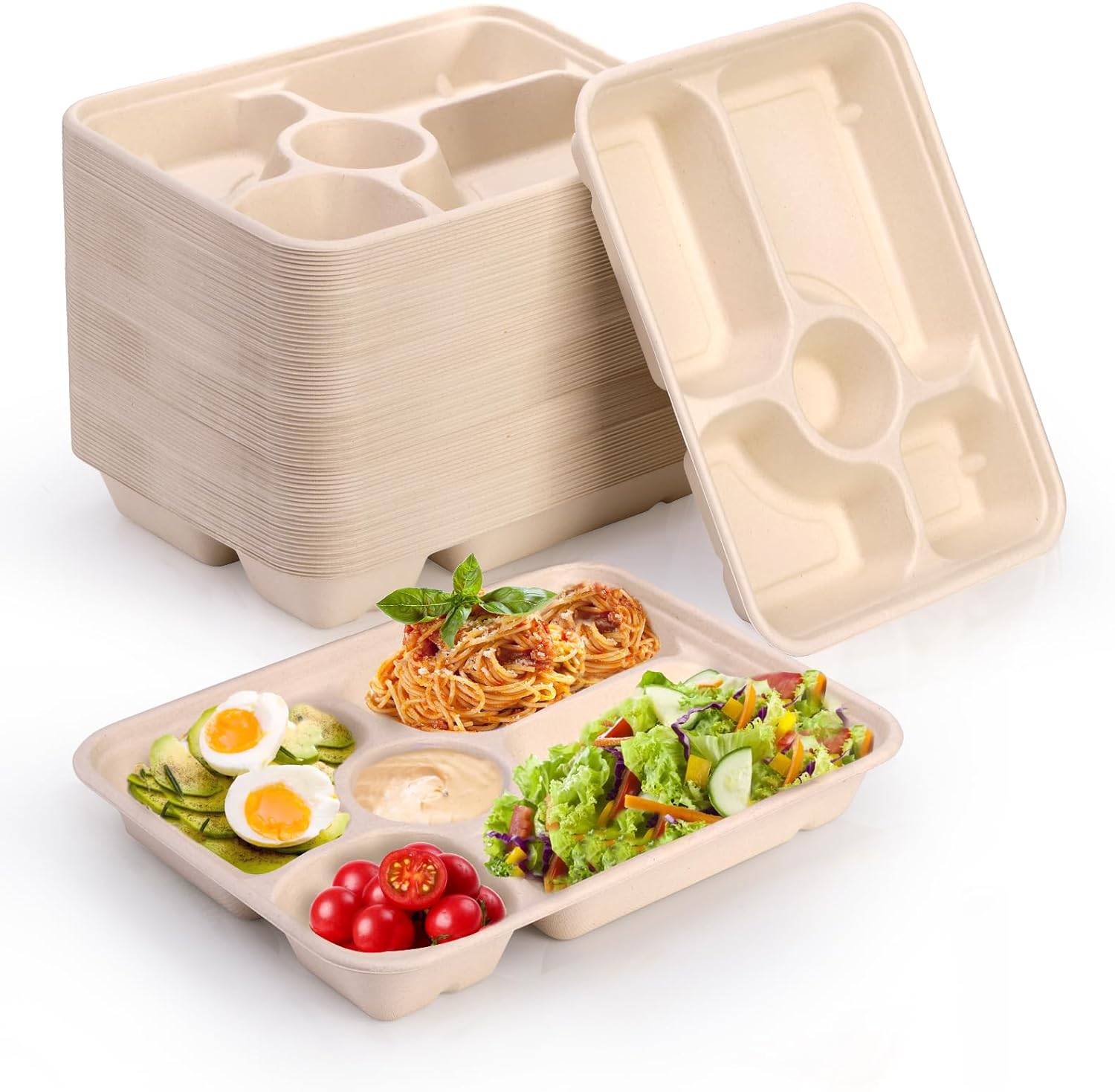 G71-3982A
G71-3982A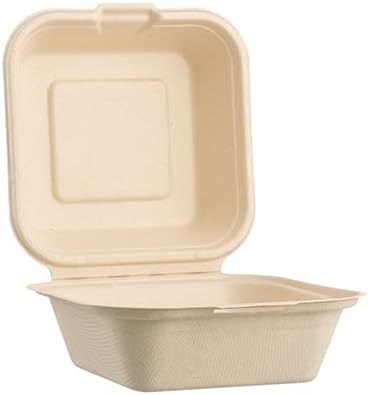 G22-0061A
G22-0061A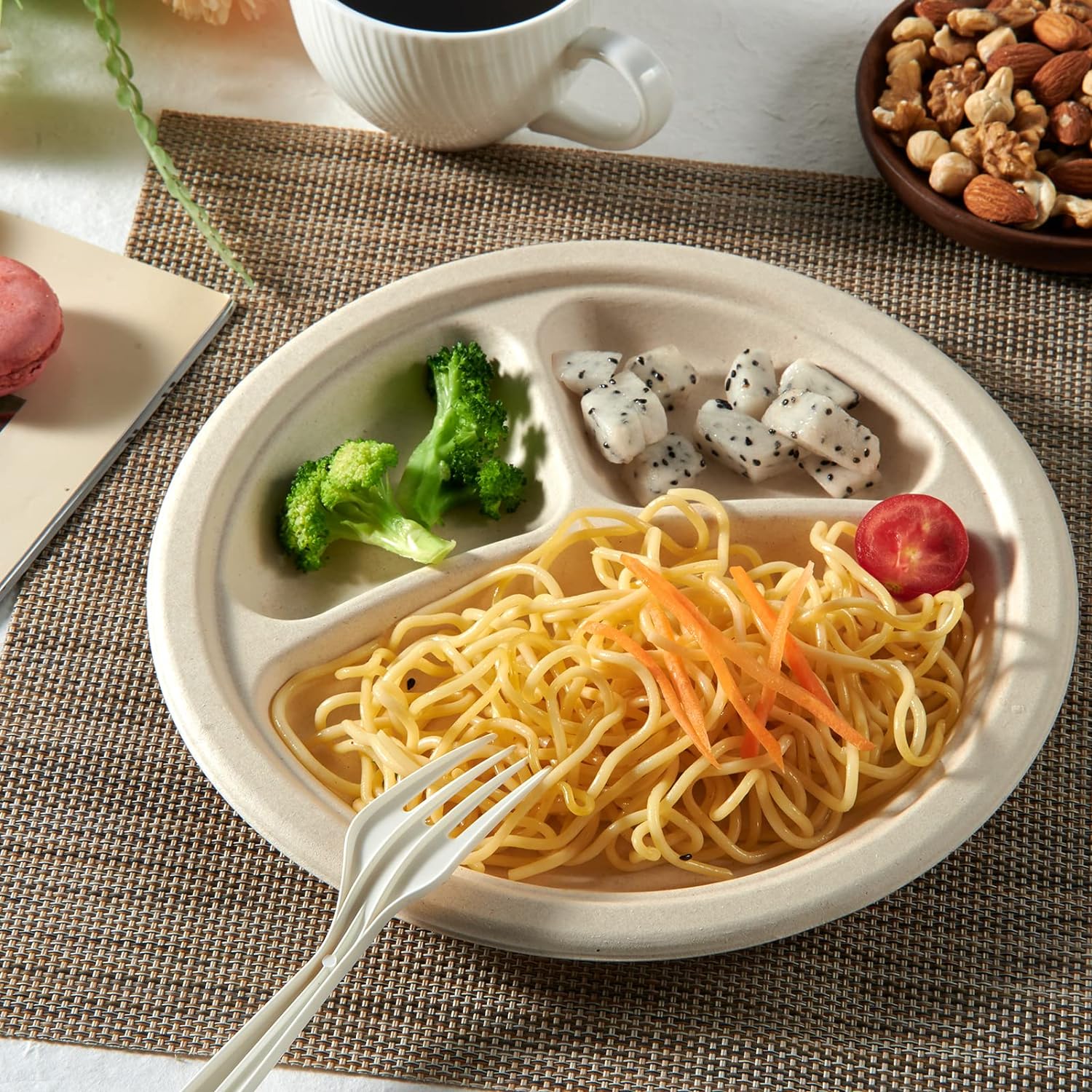 Bagasse Food Plates
Bagasse Food Plates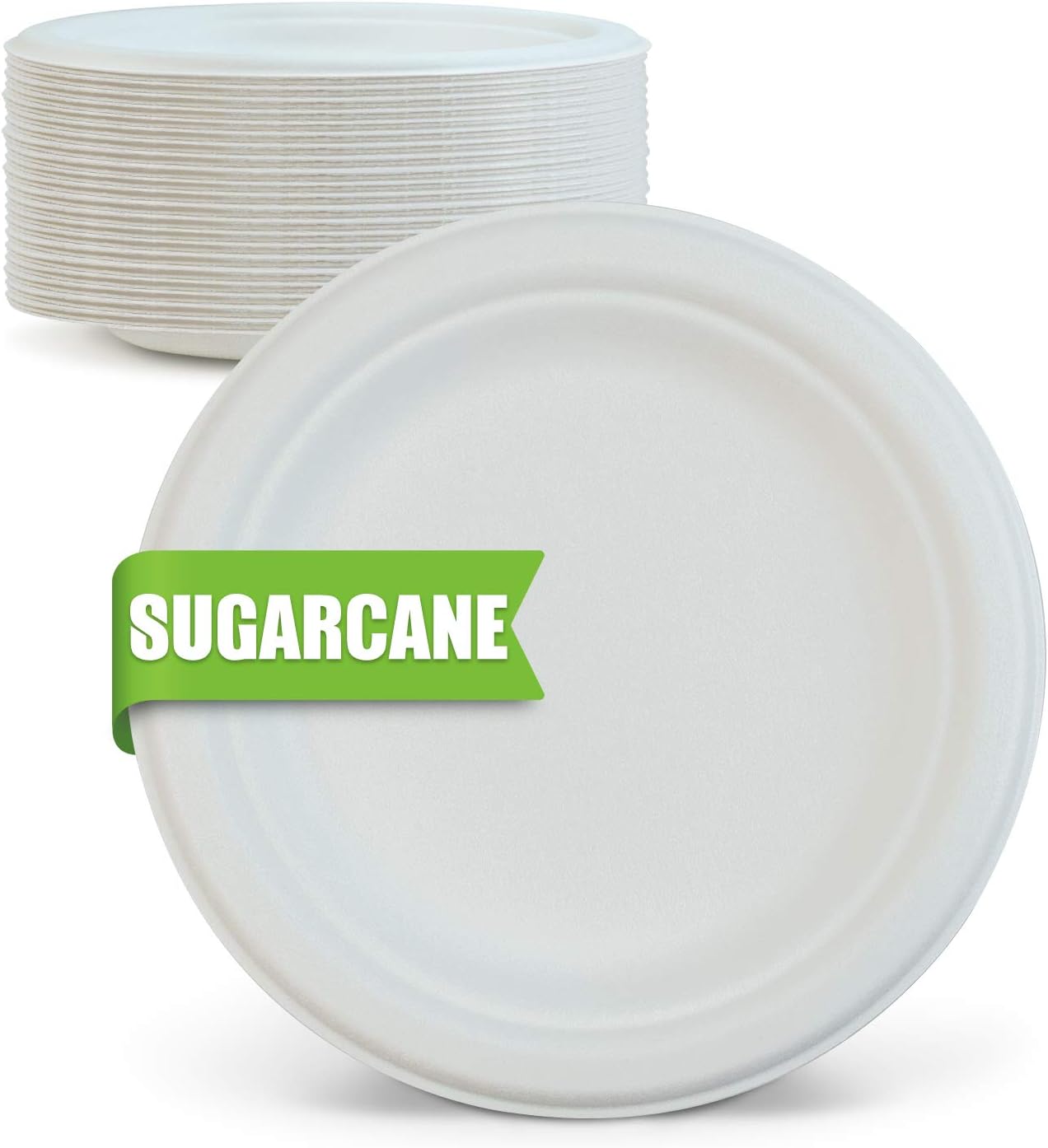 G51-0030A
G51-0030A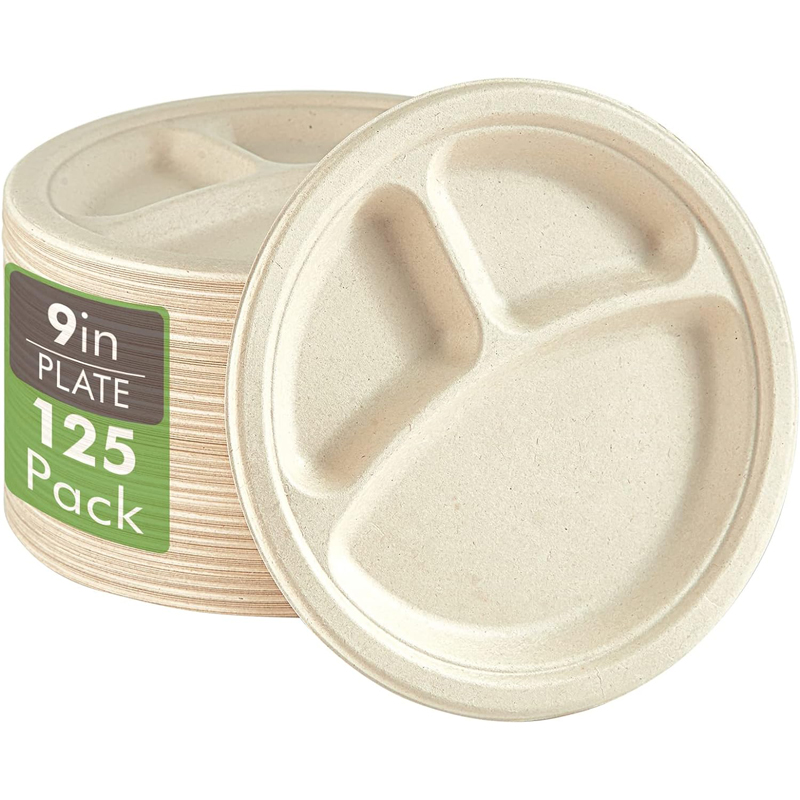 G51-0020A
G51-0020A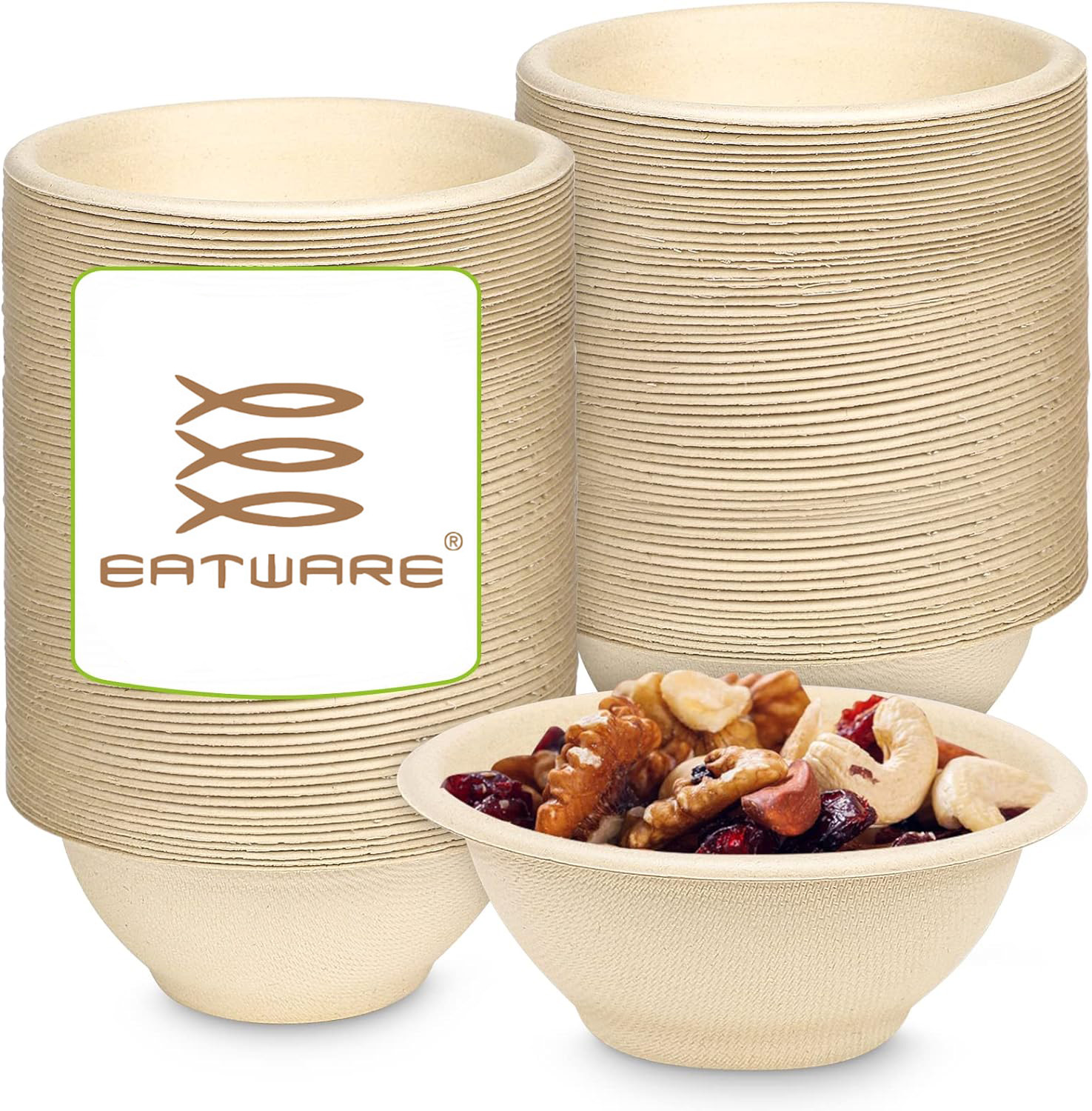 Bagasse Bowls
Bagasse Bowls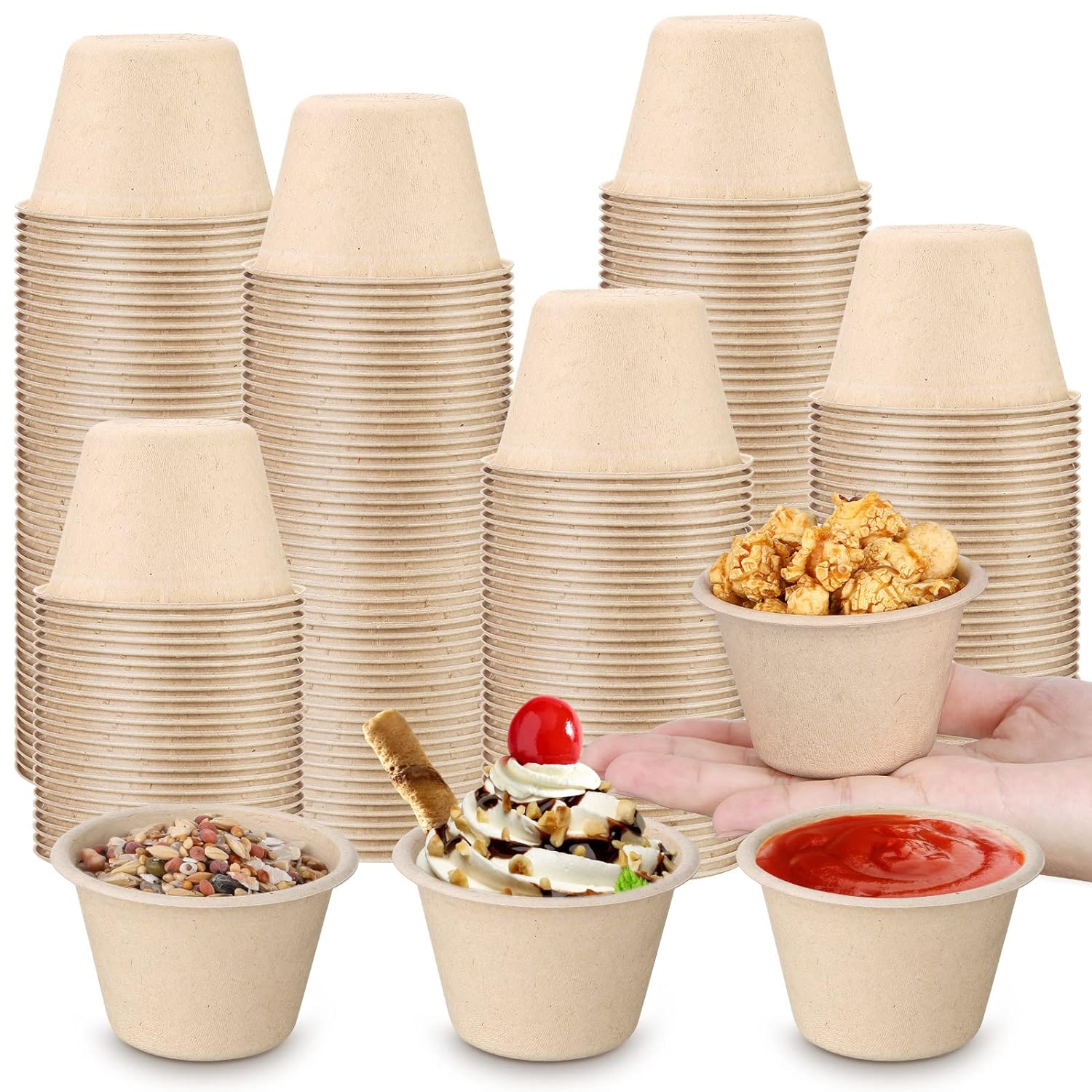 TM-C006
TM-C006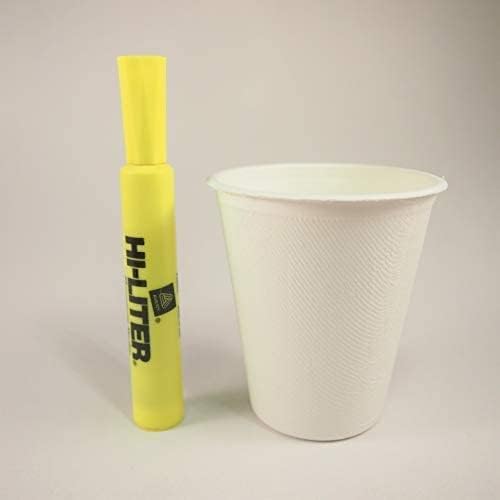 Bagasse Cups And Cutlery
Bagasse Cups And Cutlery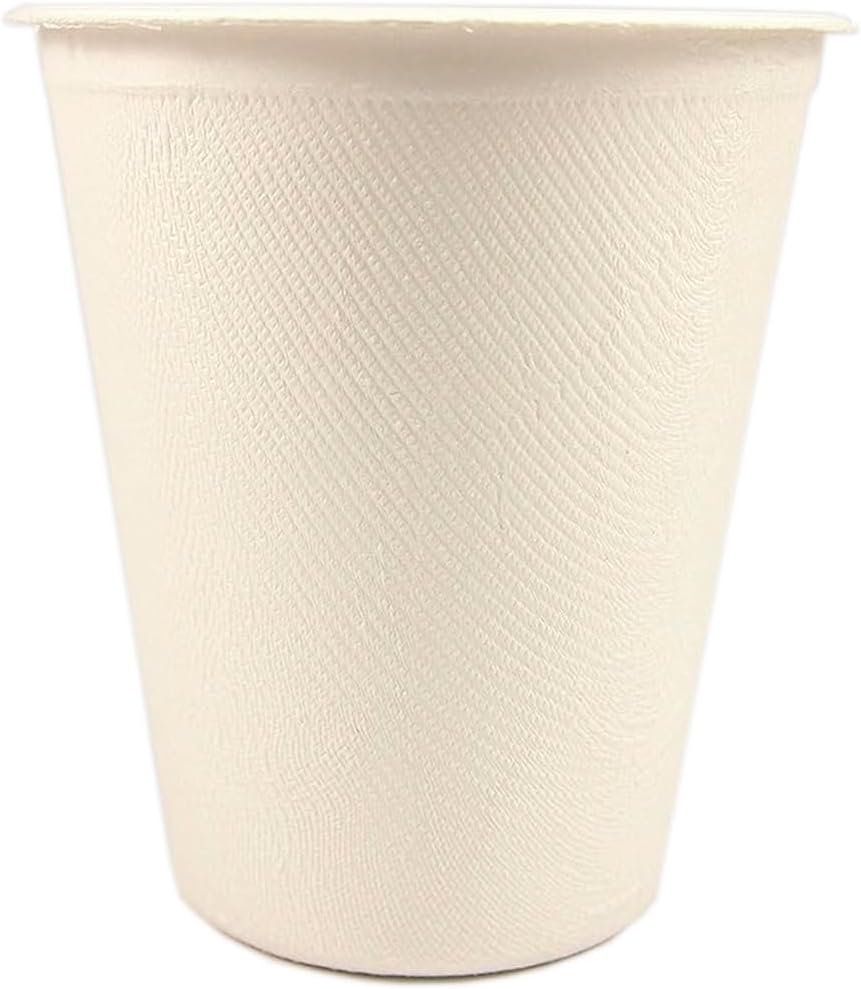 G11-0051A(W)
G11-0051A(W)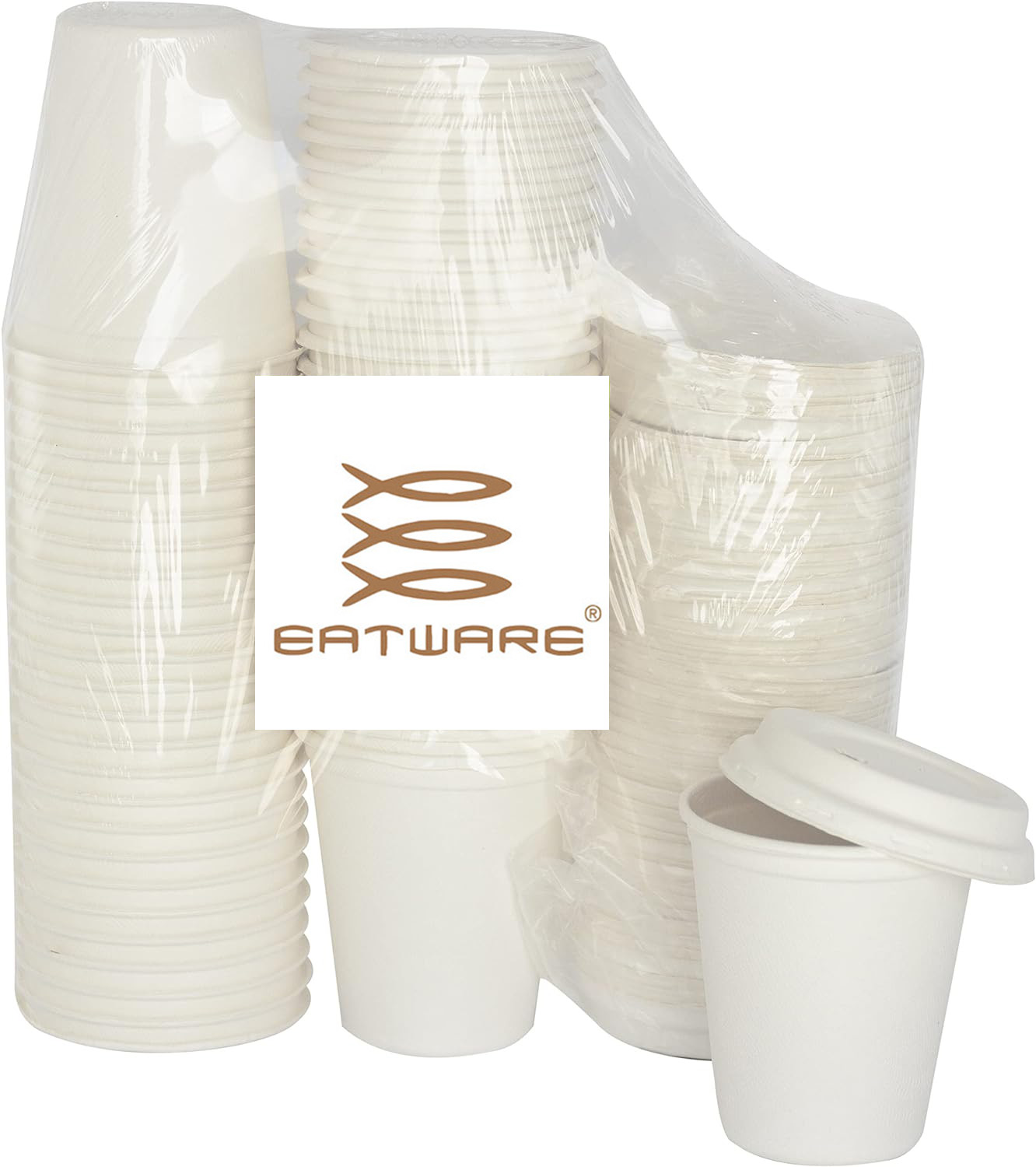 G11-0052A(W)
G11-0052A(W)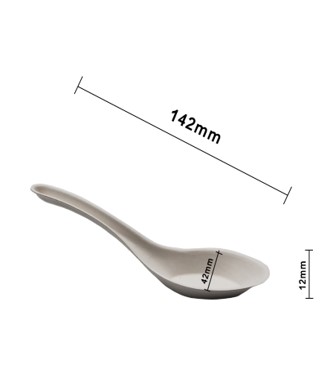 G01-0013D/C/S
G01-0013D/C/S
